Agriculture & Environment
3rd GORILLA Conference Off to a Reflective Start
Published
7 months agoon
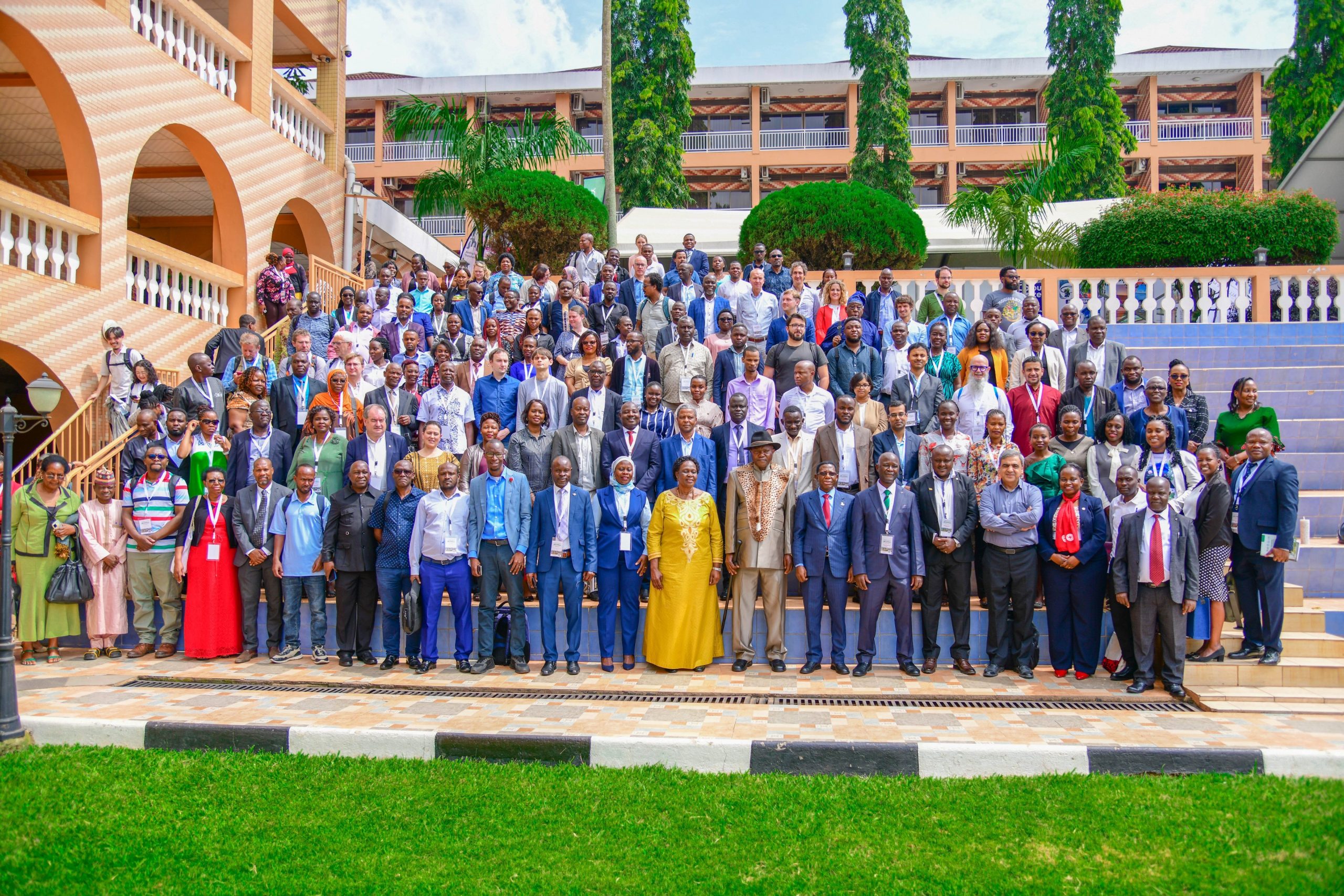
The 3rd International Conference on Geographical Science for Resilient Communities, Ecosystems and Livelihoods under Global Environmental Change (GORILLA) got off to a reflective start on Wednesday 4th December 2024 as delegates recognized that only 17% of the Sustainable Development Goals (SDGs) targets are on track to be achieved by 2030. Officially presided over by the State Minister for Environment, Hon. Beatrice Atim Anywar the opening ceremony was also graced by His Royal Highness Jude Mike Mudoma, the Umukhukha of Bamasaba Cultural Institution, Inzu Ya Masaba.
Organised by the College of Agricultural and Environmental Sciences (CAES), Makerere University in partnership with the International Geographical Union (IGU) Commission of Biogeography and Biodiversity, the IGU Commission on African Studies, Uganda Geographical Association, and the International Association of Landscape Ecology (IALE) African Chapter, the 3rd GORILLA Conference was aimed at contributing to the realization of the Global Development Agenda 2030. Specifically, the conference sought to provide a platform for conceptual, empirical, and theoretical conversations to address how science can help in bridging gaps and addressing sustainable development deficits.
Overview of the Conference
The National Organising Committee Chair and Deputy Principal College of Agricultural and Environmental Sciences (CAES), Assoc. Prof. Yazidhi Bamutaze and his Co-Chair Dr. Jerome Ssebaduka Lugimira from the National Environment Management Authority (NEMA) noted that the 2024 Conference attracted participants from over 50 countries. Whereas the first edition of the conference in 2020 attracted 114 participants, the second edition in 2022 attracted 163 participants and this year’s attracted 375 abstract submissions.
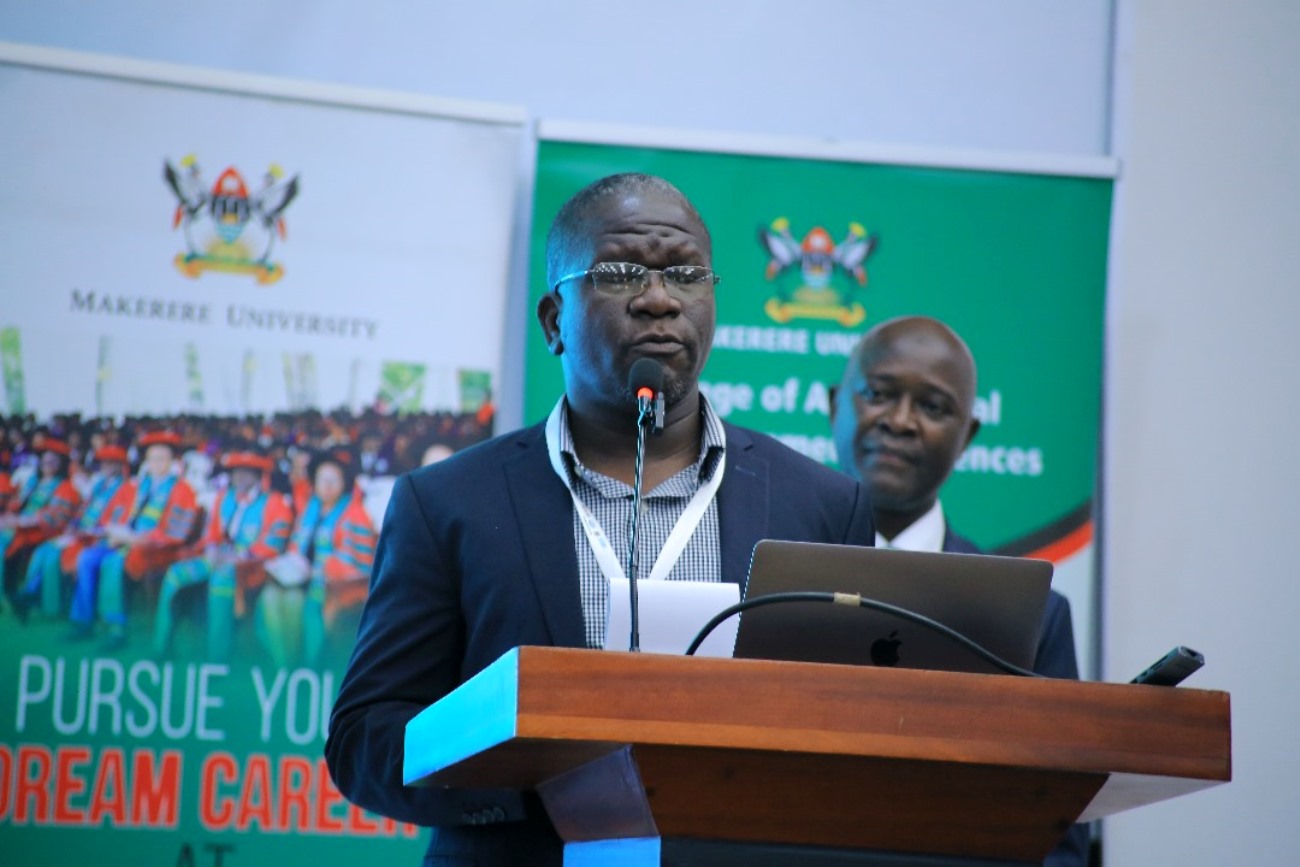
The Conference featured twelve (12) themes namely: 1) Geographies of Climate Change, Climate Justice and Just Transition, Spaces and patterns; 2) Biodiversity Informatics, Sustainable Ecosystems, Landscapes and People; 3) Green Growth and Transitions to Land Degradation Neutrality and Net Zero; 4) Water Governance and Transitions to Land Degradation Neutrality and Net Zero; 5) Interconnected Geo-hazards and Disasters in a Changing World; 6) Polycrisis: Migration, Displacement, Conflict and Humanitarianism; 7) The changing Geography of Agrifood Systems; 8) Nature Best solutions for inclusive and equitable development; 9) Emerging and novel technologies for societal resilience; 10) Sustainable Cities and Urban Systems in SSA; 11) Geographies of Energy and Energy Transitions; and 12) Environment and Health.
“What is quite striking is that the area of Biodiversity Informatics, Sustainable Ecosystems, Landscapes and People attracted the highest number of submissions, and SDG 13: Climate action turned out to be the most attractive but, you also have issues to do with SDG 15: Life on Land and SDG 14: Life Below Water” Prof. Bamutaze reported.
He noted that the Conference was desirous of taking stock of technologies, knowledge, innovations and all undertakings at local levels that are imperative in ensuring that the journey to achieving SDGs prioritizes safety. Staying with the SDGs, Prof. Bamutaze noted that despite the large volume of work published by scientists, there was a big gap regarding the utility of this work by policies.
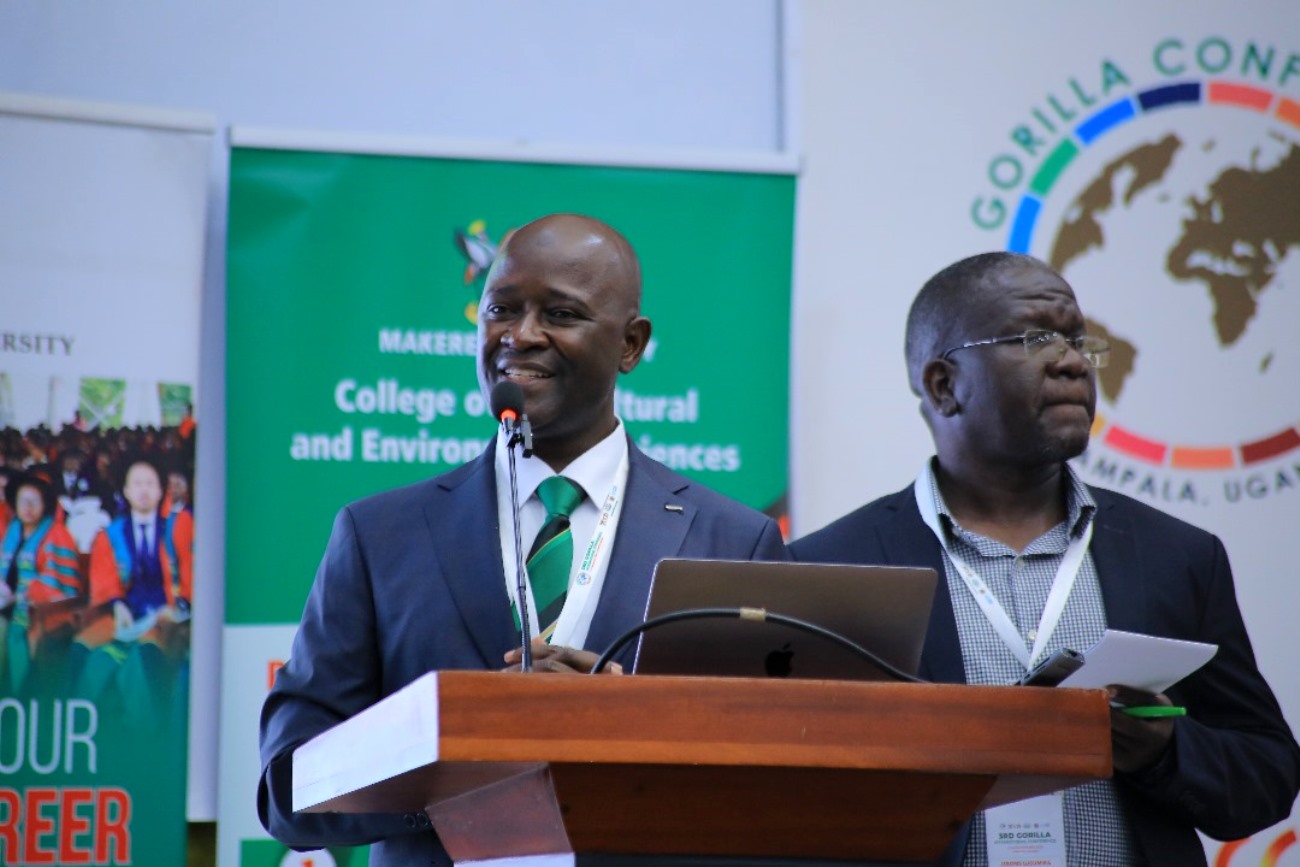
Prof. Bamutaze shared that the Conference was preceded by trainings on how to harness Artificial Intelligence in ongoing work on biodiversity, a Hackathon aimed at tapping into Earth Observation data, a Summer School on Community Resilience and Geo-visualization with field visits to the Mt. Elgon catchment area as well as trainings on scientific writing.
Co-creation key to Social Transformation
In his remarks, the Acting Vice Chancellor, Prof. Buyinza Mukadasi noted that the glaring sustainable development deficits call for accelerated actions from institutions in Africa, especially since the continent’s contribution to global knowledge output stands at less than 5%.
“We have an obligation to co-create knowledge tailored to environmental and social contexts that is actionable at scale; provide key evidence to policy makers and practitioners to enable them undertake grassroots actions and interventions; as well as co-create innovations that can catalyse social transformation” he shared.
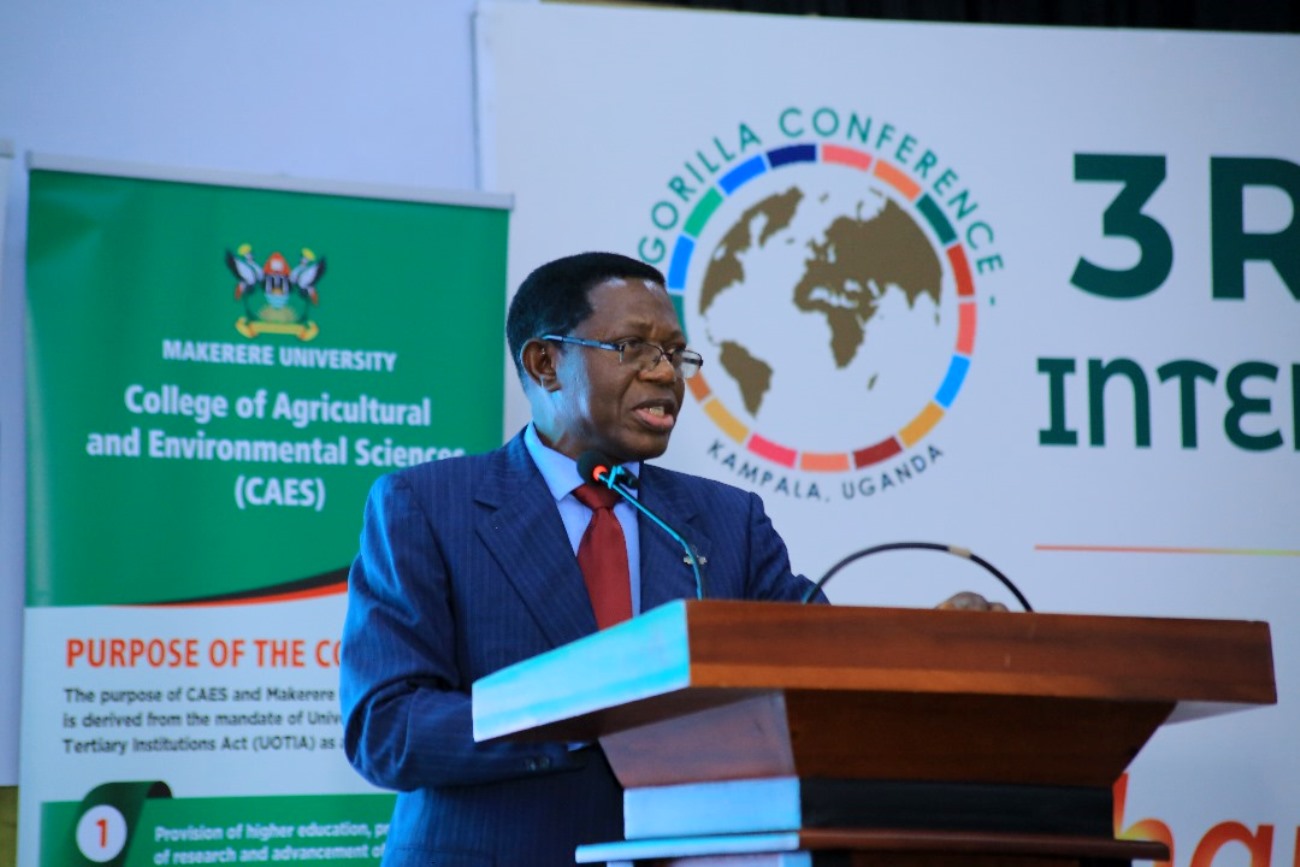
Prof. Buyinza informed conference participants of Makerere’s continued investment in building partnerships that advance national and global sustainability, with specific focus on PhD training so as to improve annual knowledge output from Africa. “Under the African Research Universities Alliance (ARUA), we have defined core areas/disciplines in which we will collaboratively be churning out 1,000 PhDs annually.”
The Role of Traditional Ecological Knowledge (TEK) Systems
Addressing the conference, the Umukhukha Jude Mike Mudoma admitted that he was no stranger to academia, having been in research circles for the last 28 years as an environmental scientist. He therefore appreciated the opportunity to participate in the conference, especially at a time when the geographical area covered by his kingdom is in need of restoration to alleviate recurring natural disasters such as landslides.
The Umukhukha defined TEK as knowledge, beliefs and practices that indigenous people have developed over centuries to manage and conserve natural resources. “Our TEK is based on observations, experiments and spiritual connections with the natural world,” he noted, further adding “For example, our ancestors developed agroforestry systems that mimicked the natural forest ecosystem, promoting diversity and soil fertility.”
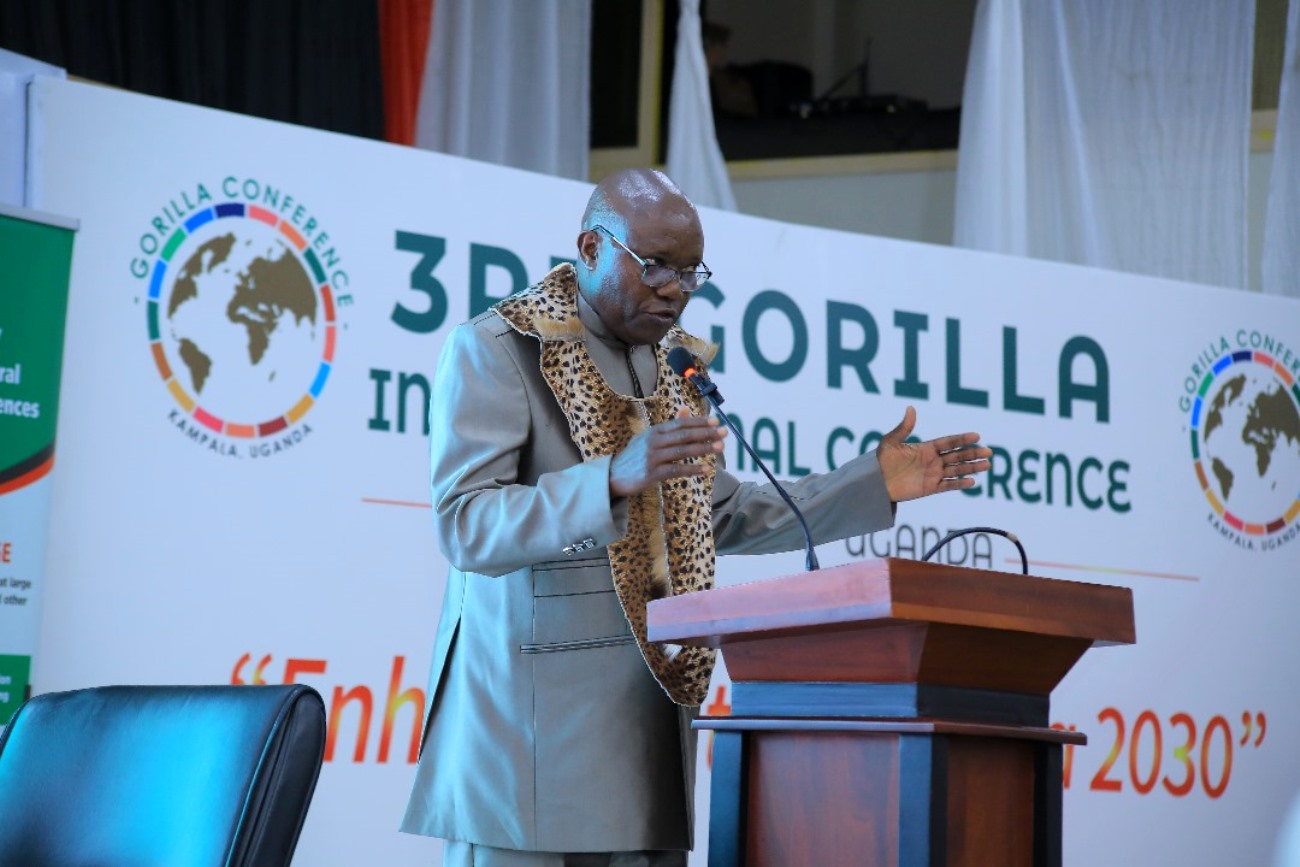
HRH Jude Mike Mudoma singled out rainwater harvesting techniques and extensive knowledge of medicinal plants that has been passed down through generations as other examples of TEK. He further outlined the Bamasaba Clan-based Governance that provides a framework for decision making, conflict resolution and resource management as well as the Council of Elders that provides guidance and oversight of matters related to natural resource management, cultural heritage and community development as traditional institutions that play vital roles in TEK. He equally singled out traditional ceremonies such as Imbalu (circumcision) as gatherings that promote cultural heritage and provide opportunities for community members to discuss pertinent issues.
“I want to implore you people that we should help our scientists to document and preserve our TEK for future generations” appealed the Umukhukha to conference participants. “Secondly I want support for community-led initiatives. The whole of Mt. Elgon range is now declared a disaster area because we ourselves have destroyed the environment and recently we lost over 190 people who were buried and we have only recovered 25” added H.R.H. Mudoma.
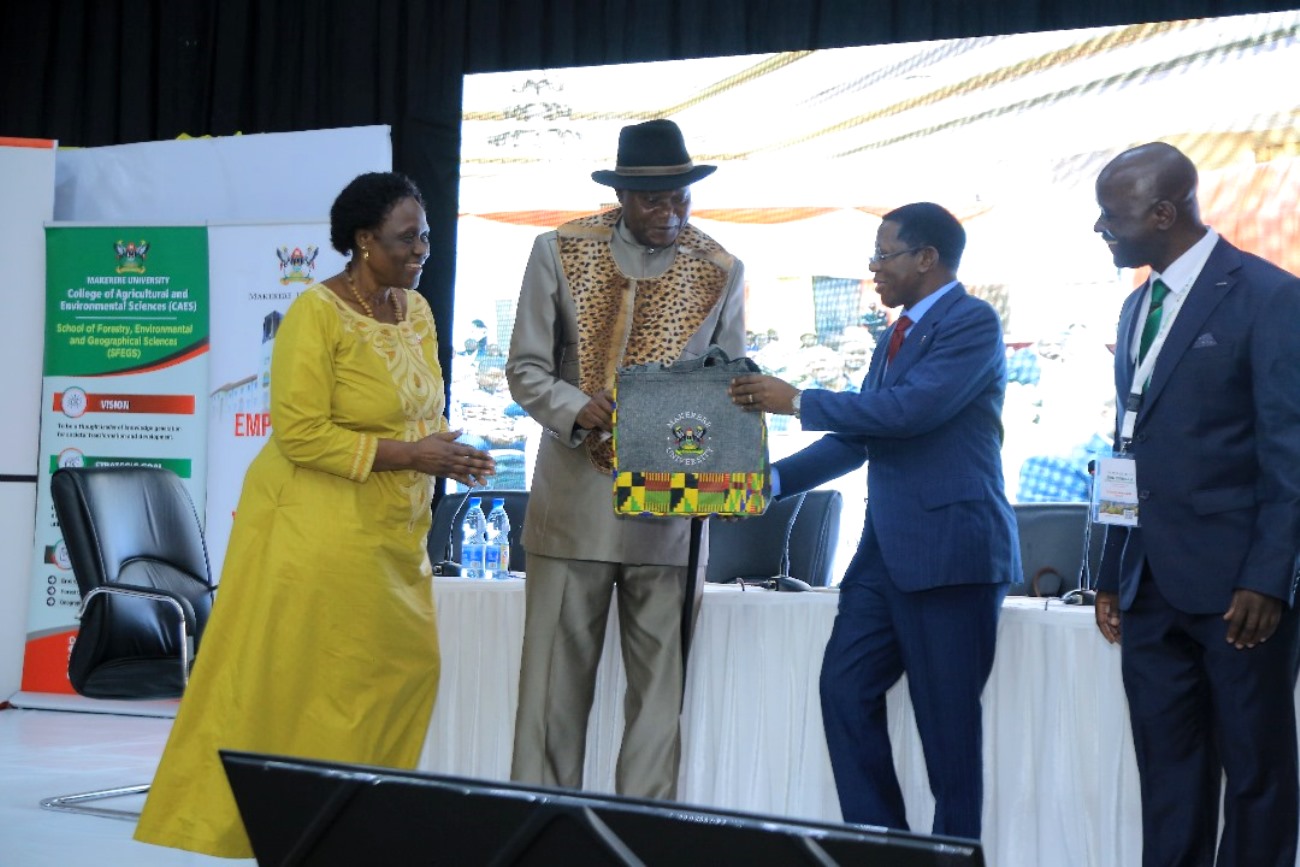
He further appealed to participants at the 3rd GORILLA Conference to support the Mt. Elgon region in areas of disaster risk reduction and management as well as environmental conservation and restoration. “Another area is climate change adaptation and mitigation and of course when these are done, we cannot forget community-based initiatives for sustainable livelihoods, which I have seen is part of your discussions here and I want to benefit from your expertise.”
Timing of 3rd GORILLA Conference Key
Following the moment of silence observed in respect of the recent Mt. Elgon landslide victims, the Chief Guest, Hon. Beatrice Atim Anywar lauded the timing of the conference as befitting, especially as it coincides with ongoing local, regional and global efforts to address pressing sustainability challenges and transitions towards a green world.
Referring to the 29th Annual United Nations Climate Change Conference (COP29) she attended in Baku, Azerbaijan, Hon. Anywar took note of the reinforced global climate action through an annual commitment of US$300billion in climate financing. The funding, she added, will help vulnerable nations adapt to climate change and embrace renewable energy.
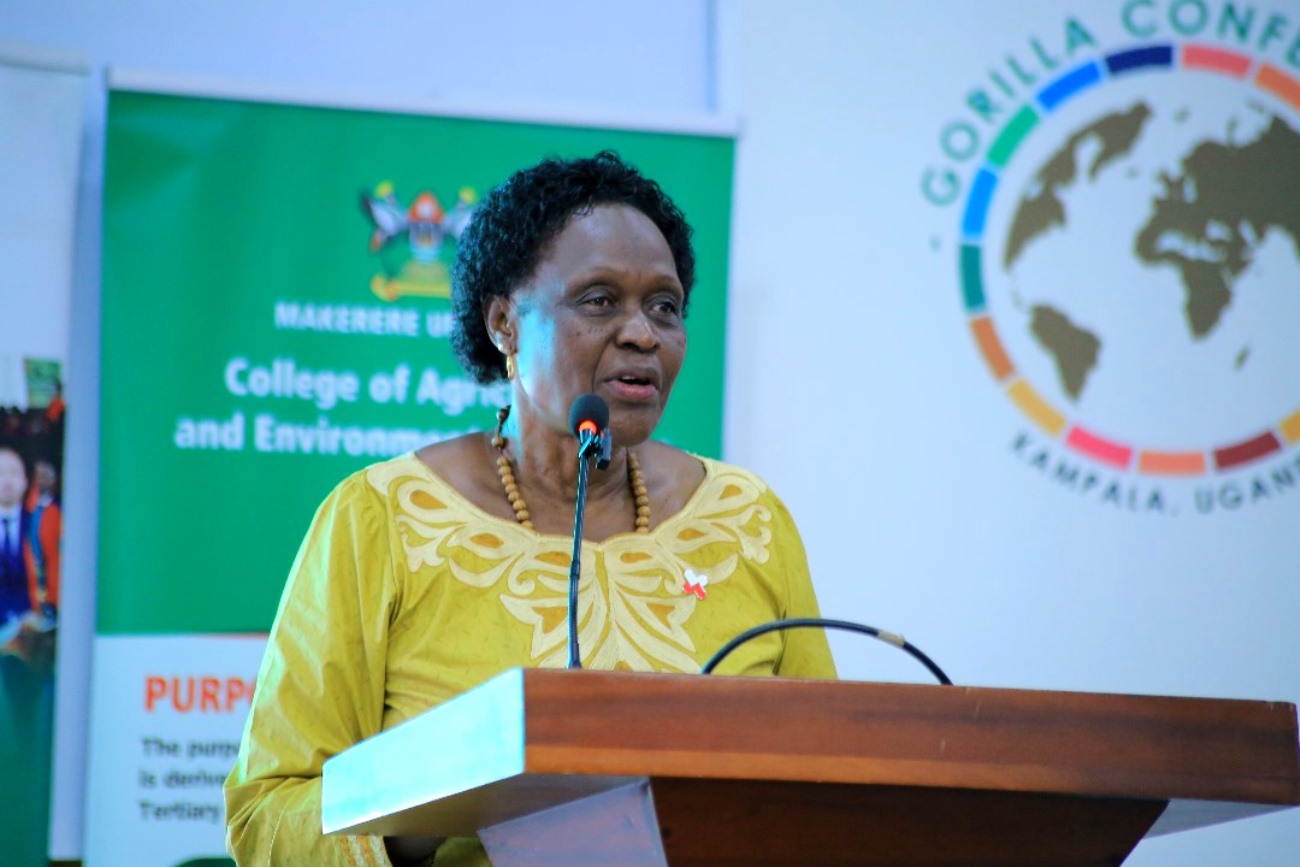
“As we sit here, I want us to think, how can we prepare as a country for the carbon credit and carbon markets? It is a new discovery, it is a new source of financing, how prepared are we?” Hon. Anywar asked her audience. “How do we have it clearly explained to our people the difference and benefits between organic agriculture and genetically engineered agriculture?” she further added.
The State Minister further urged the academia to always ensure that the community is brought on board during events where research is being disseminated. “In order to benefit them, they must be part of us, and they must understand what we are doing; they shouldn’t be suspicious” she added.
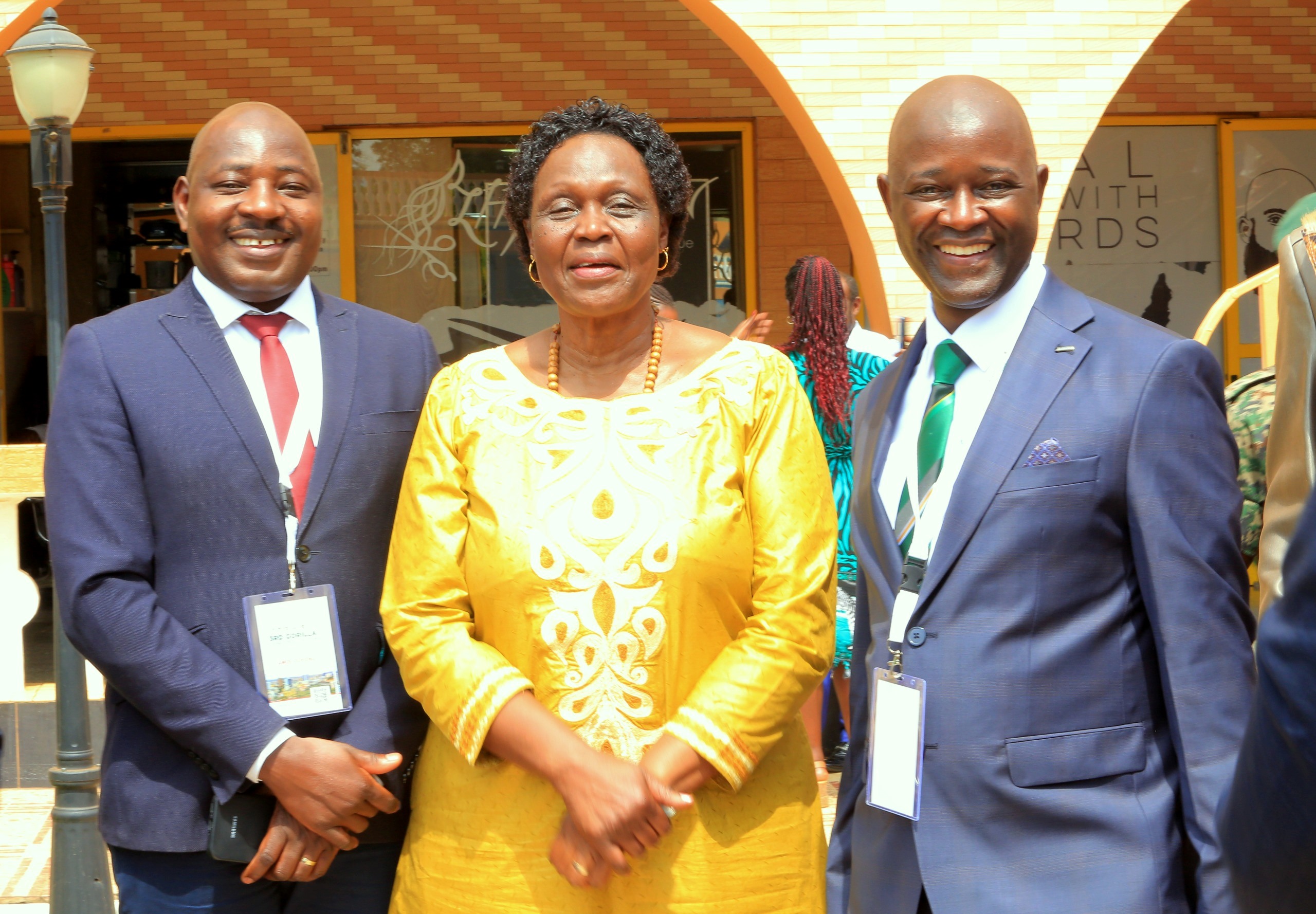
Hon. Anywar concluded by urging participants at the 3rd GORILLA Conference to use the platform to together cultivate a cohesive knowledge ecosystem that drives forward Agenda 2030, “and this should include the Traditional Ecological Knowledge (TEK) as stipulated by H.R.H. the Umukhukha” she emphasised.
Insight into Remote Sensing in Africa
The opening ceremony was followed by a Keynote Address delivered by Prof. Moses Azong Cho, Professor at the University of Pretoria and Chief Researcher at the Council for Scientific and Industrial Research (CSIR), South Africa. His presentation titled Managing Remote Sensing Technology for Assessing Biodiversity sought to describe biodiversity in the context of remote sensing, illustrate some of the work that has been done in the field, and touch on the new era of space borne remote sensing for biodiversity assessment.
“I tell you my African colleagues, if you think that remote sensing in Africa is simpler, you’re mistaken. You’re dealing with a more complex environment; forests are more diverse, savannah landscapes are very diverse and rural areas are quite heterogeneous – the mosaic of different landscape forms and types is crazy on the continent. So, we rather need more complicated remote sensing tools to be able to provide the kind of information that’s required on the continent” narrated Prof. Cho of his experience.
He equally urged scientists and their teams to mind the way they communicate with stakeholders when they take remote sensing products to the communities. “Try to understand the stakeholders and ensure that you will sit down and have the language to convince them what you’re offering can actually help them improve on their services and decision making.”
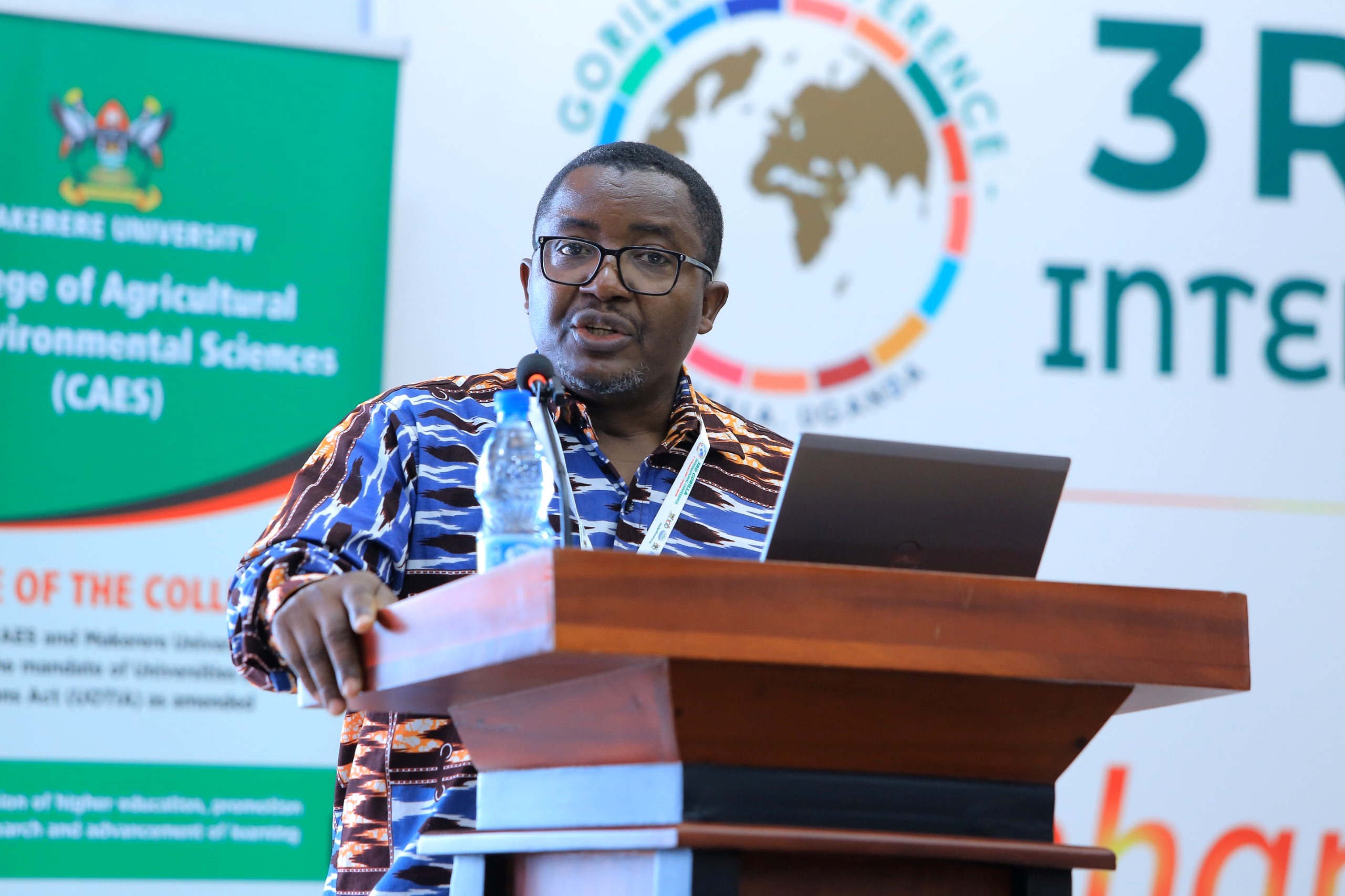
Prof. Cho who earlier described himself as a Bio-Geoinformatician; one who combines knowledge of Biology, Ecology, Geography, Remote Sensing, and Geographical Information Science to understand biodiversity and ecological phenomena, found himself gradually becoming an Agro-Geoinformatician. This was after their rich biodiversity information and data maps could hardly attract any funding despite the well-articulated need to conserve the environment.
“Our people are dying of hunger, we need to produce food” prospective funders would respond, later adding “and you are saying we should conserve the rich landscape, with 60% of fertile uncultivated land present on the continent of Africa?”
This light bulb moment from this response led to the development by Prof. Cho and his team, of systems that can enable farmers to effectively use small parcels of land to cultivate food, as opposed to nomadic farming whereby exhausted soils are abandoned for opening of previously uncultivated lands, often rich in biodiversity. Smart farming, digital farming, satellite farming, conservation farming and regenerative agriculture are names that have come to define these systems.
“Remote sensing can play a vital role in these systems and so we actually changed the name of our research group from Earth Observation Group to Precision Agriculture Research Group and suddenly, we started getting lots of traction with both Government and Private Sector because we packaged the information that we generate using our remote sensing models into a software called the Precision Agriculture Information System” Prof. Cho shared.
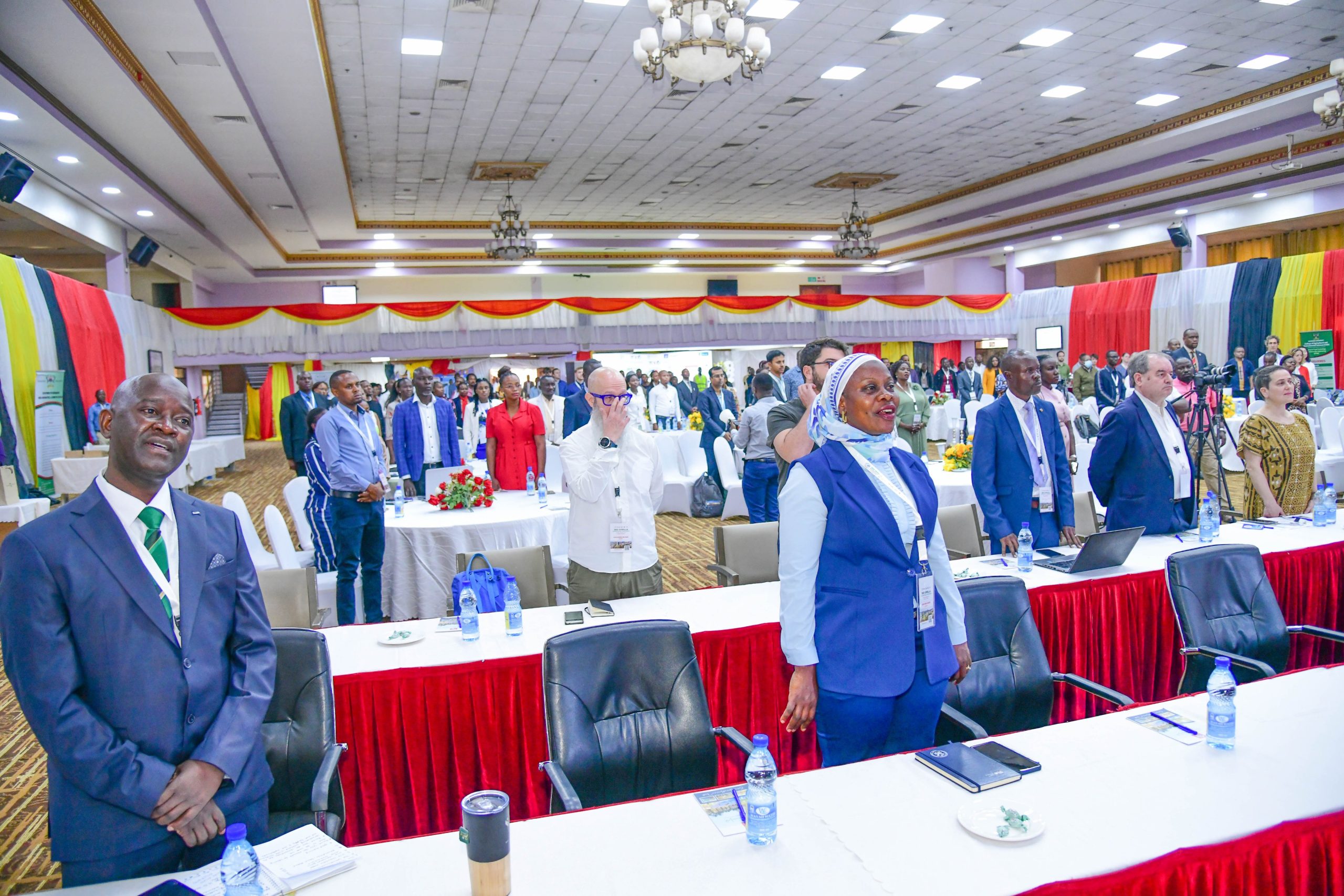
The software enables farmers to access information on soil conditions and the health of their crops on a weekly basis. “We have developed models that can very accurately predict soil organic content, soil nitrogen content, pH of the soil, and soil moisture, because we have taken time to interpret the spectral information” Prof. Cho triumphantly shared.
On the new era of space borne remote sensing that is upon us, Prof. Cho shared that this will provide even higher resolution imagery that can monitor crop stress and relatedly, the impacts of climate change on ecosystems. “NASA is working on new programmes; there’s the PANGEA programme, where I am a Committee Member, where we want to deploy these new sensors within tropical forests in Congo, Cameroon and Ghana to see how we can assess tropical forest biodiversity and change with respect to global changes.”
Furthermore, developments such as the new synthetic radar signal that is not sensitive to clouds enables acquisition of reflected microwave energy both during the day and night, which is critical for the humid tropical regions that experience a lot of cloud cover.
“We need to prepare so that we are not left behind, particularly those of us on the African continent. We need to develop our infrastructure, and cloud computing platforms. We need to develop the capacity amongst our youth when it comes to big data analytics” concluded Prof. Cho.
Summing it all up
The captivating keynote address was followed by a panel discussion that debated; what academia is doing to ensure that it breaks free from the “Ivory Tower” mentality, and how academia and research institutions can contribute to processes that lead to the attainment of SDGs. Furthermore, the panel discussed; what universities can learn from Civil Society Organisations (CSOs), what CSOs can do to support Government’s drive to achieve SDGs, and the communities’ experience of progress made on SDG3: Good Health and Wellbeing, SDG6: Clean Water and Sanitation, and SDG13: Climate Action.
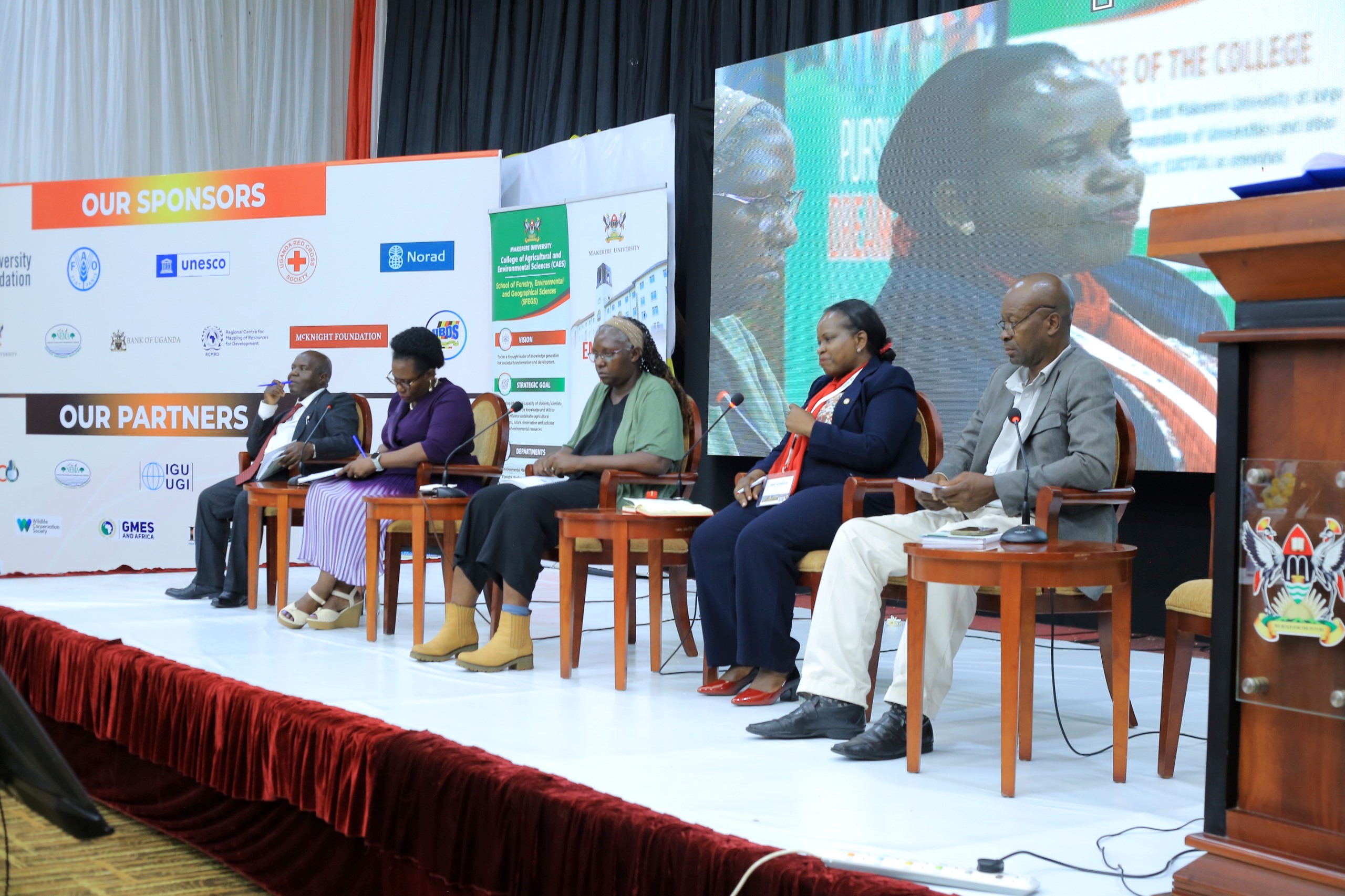
Panelists included Assoc. Prof. Justine Namaalwa- Head Department of Environment Management, CAES, Mr. Ronald Kaggwa-National Planning Authority (NPA), Ms. Pauline Nantongo Kalunda- Executive Director ECOTRUST – the Environmental Conservation Trust of Uganda, Dr. Harriet Rachel Kagoya- Director of Operations Uganda Red Cross Society (URCS) and Mr. Moses Nadiope-Chairman/Coordinator Kasubi Parish Local Community Development Initiative.
To learn more about the GORILLA Conference, please visit: https://gorilla.mak.ac.ug

You may like
-


Call for Applications: Responsible Conduct of Research (RCR) Training Course
-
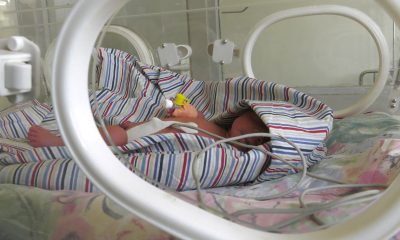

Call For Applications: PhD Fellowship Training Position
-
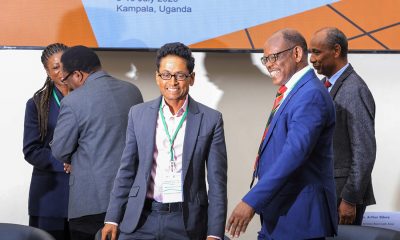

Makerere Hailed for Its Leadership in Health Policy and Knowledge Systems
-
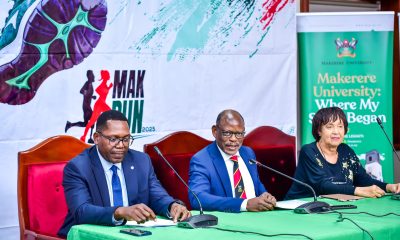

NCBA Commits UGX 1.45 Billion to Makerere Marathon, Pledges Five-Year Support for Inclusive Education
-
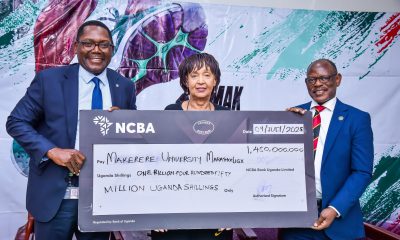

Mak Marathon Unveils NCBA as Platinum Sponsor
-
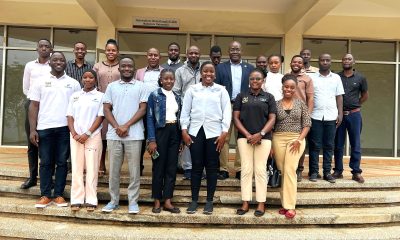

SophiA Project Upgrades Medical Infrastructure at Buvuma Health Centre IV, Trains Technicians for Maintenance Works
Agriculture & Environment
SophiA Project Upgrades Medical Infrastructure at Buvuma Health Centre IV, Trains Technicians for Maintenance Works
Published
3 days agoon
July 9, 2025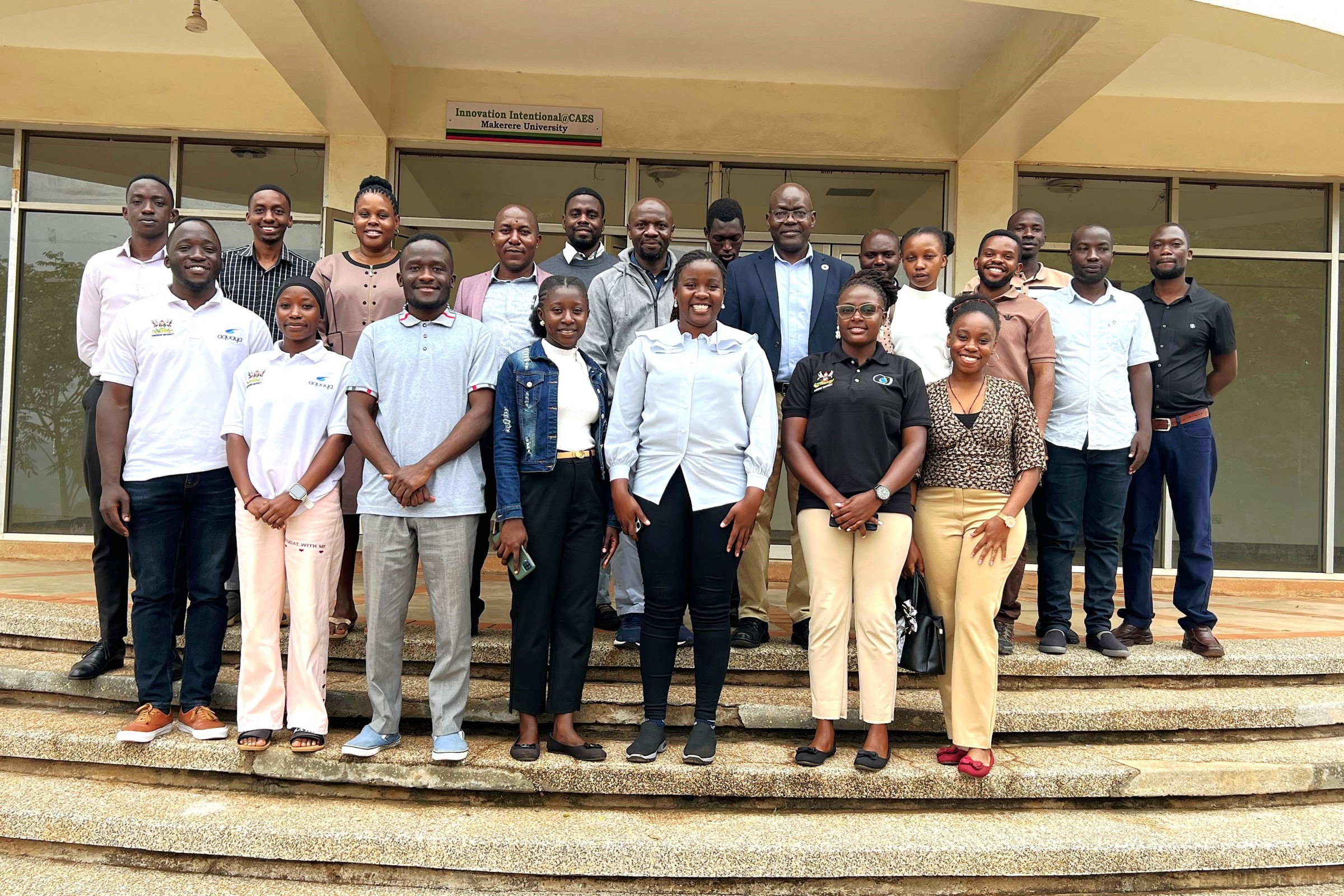
Overview of the Sustainable Off-Grid Solutions for Pharmacies and Hospitals in Africa (SophiA) Project
Despite ongoing urbanization across Africa, the majority of the population still resides in rural and remote areas, where infrastructure development remains limited. These regions face significant challenges such as lack of access to healthcare, education, clean water, and reliable electricity, contributing to higher rates of illness and poverty compared to urban centres. According to reports, Sub-Saharan Africa has approximately 120,000 public health facilities (22,000 hospitals and 98,000 health posts), of which around 26% lack any electricity access, and only 28% have reliable power supply.
Access to good healthcare is critical for sustainable development. However, many rural medical centres operate under harsh conditions – using polluted water, lacking cooling for medicines, and facing poor sanitation – largely due to unreliable electricity and water supply. Although half of the population in Sub-Saharan Africa lacks electricity, the region has abundant renewable energy potential that can be effectively harnessed through off-grid solar photovoltaic (PV) systems.
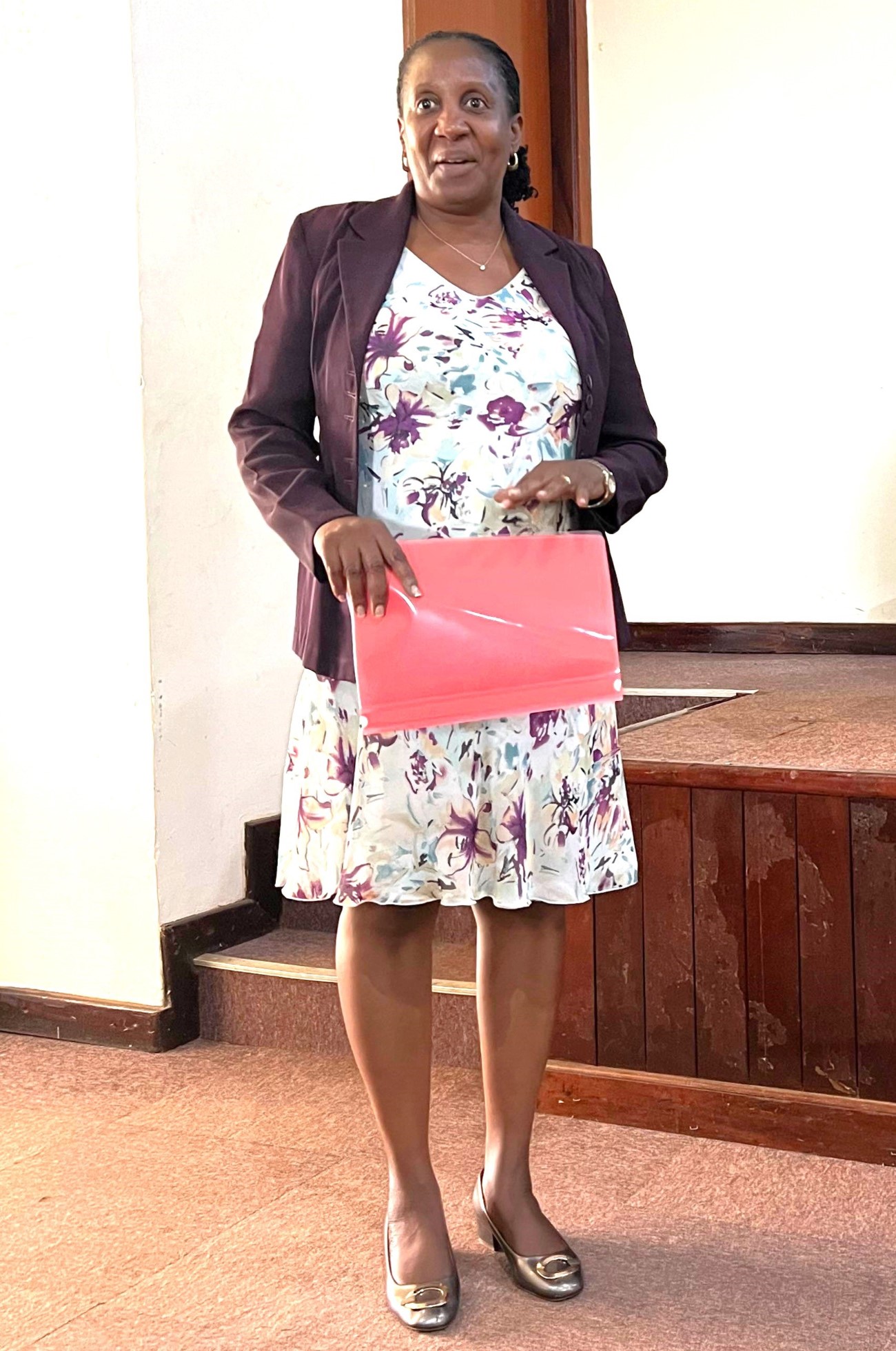
To address the above-mentioned challenges facing the African Continent, Makerere University in partnership with 13 organizations across Europe and Africa developed a project titled, “Sustainable Off-grid solutions for Pharmacies and Hospitals in Africa (SophiA)”. The five-year project that began on 1st October 2021 is funded by the European Union (Project: 101036836 – SophiA – H2020-LC-GD-2-3-2020). At Makerere University, the project is coordinated by Dr. Nicholas Kiggundu, Associate Professor in the Department of Agricultural and Biosystems Engineering, College of Agricultural and Environmental Sciences (CAES).
Piloted in Burkina Faso, Cameroon, Malawi, and Uganda, SophiA aims to provide sustainable off-grid energy solutions to rural and remote health facilities, fostering economic growth and ensuring equitable access to energy and healthcare. Using various technologies, such as photovoltaics, solar thermal, electrical and thermal storage, water treatment and natural refrigerants with low global warming potential, SophiA has developed and manufactured locally innovative, modular, affordable and efficient solar powered systems for providing:
- Safe and clean drinking water, free of bacteria and viruses, and deionised water for medical purposes;
- Hot water and steam production for thermal requirements of the hospitals;
- Cooling of medicines and food at +5°C;
- Low temperature storage of blood plasma and vaccines at -30°C;
- Ultra-low temperature storage of sensitive medication (e.g. some Covid-19 or Ebola vaccines) at -70°C.
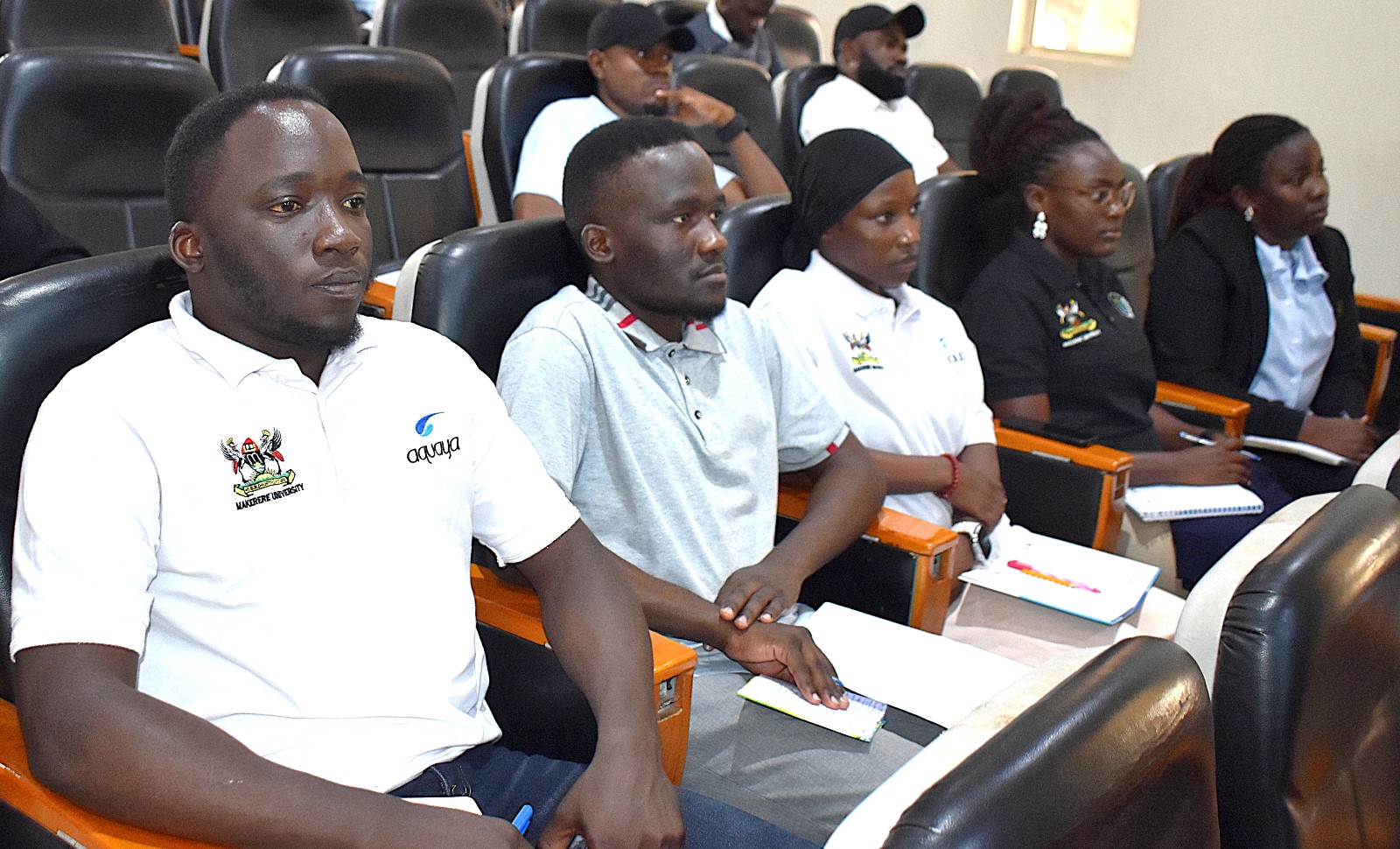
In addition, PV MedPort, a simple and 100% solar-powered solution has been developed and tested as a mobile health care station in small remote areas in 4 different geographical conditions in Africa. The SophiA system has been manufactured in Africa and will provide, for the first-time, innovative solutions based on climate-friendly natural refrigerants to cover cooling demand for three different temperature ranges (-70°C, -30°C and +5°C). The system has been tested and demonstrated at four rural hospitals in remote regions throughout the African continent covering the major geographical regions and different climatic conditions in Burkina Faso, Cameroon, Malawi and Uganda.
SophiA Project initiatives in Uganda
In Uganda, all Health Centre IV hospitals with surgical theatres have been connected to the national grid except Buvuma Health Centre IV, which serves over 120,000 people scattered across 52 islands. Recognizing this gap, the Ministry of Health selected Buvuma Health Centre IV for the SophiA project to demonstrate sustainable off-grid solutions.
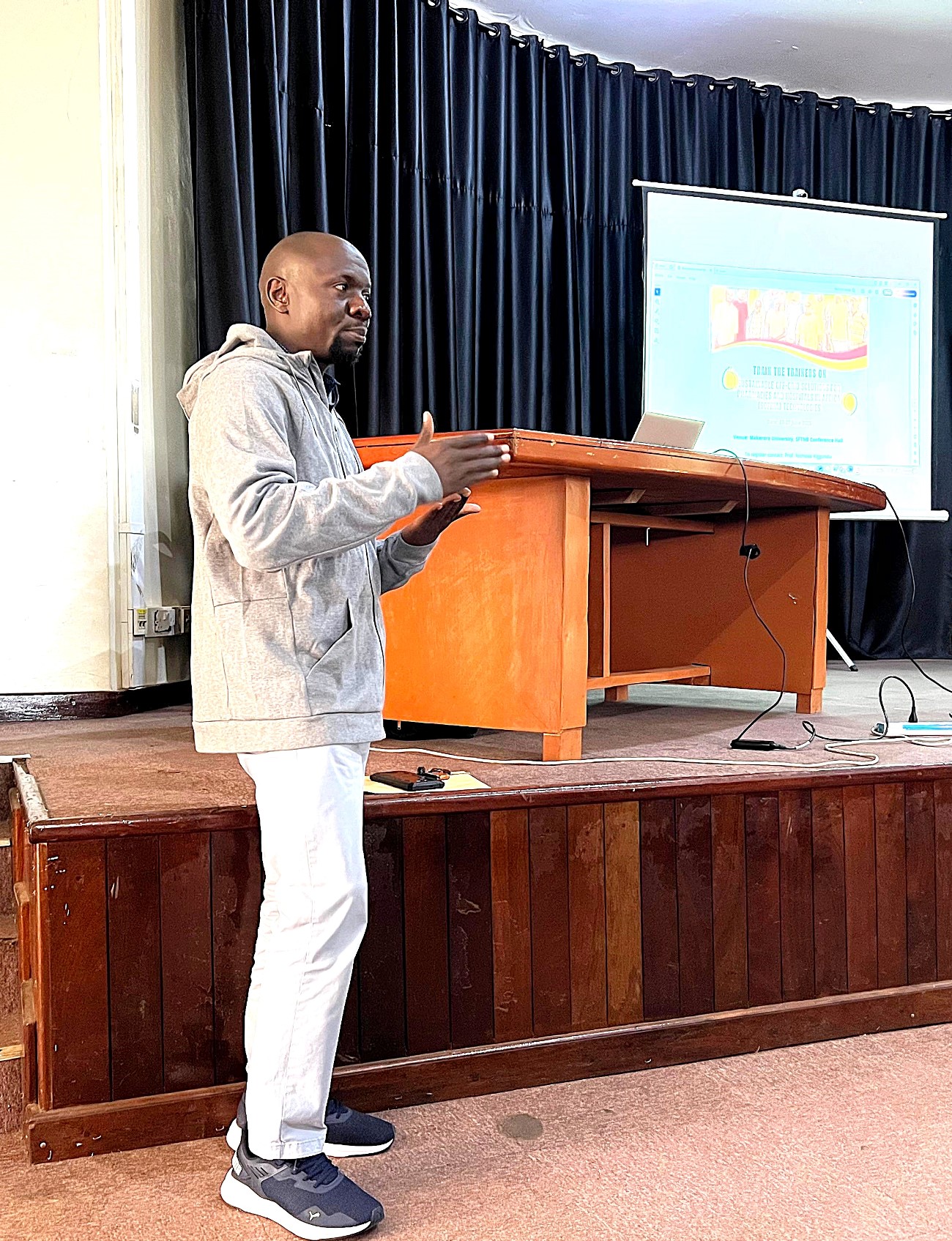
The SophiA System at Buvuma Health Centre IV provides the following services:
- Off-grid electricity supply
- Safe, clean drinking water for patients, staff, and the community
- Hot water and steam systems crucial for maternal care
- Solar-powered cooking and meal preparation
- Cooling systems for surgery and intensive care units
- Refrigeration for medicines at +5°C, blood plasma storage at -30°C, and ultra-low temperature storage (-70°C) for sensitive vaccines such as those for COVID-19 and Ebola
Training of Trainers Workshop
As the SophiA project approaches completion in September 2025, it is vital to establish a skilled pool of technicians capable of handling maintenance and minor repairs of the system components, including solar panels, water treatment units, generators, batteries, and cooking kits.
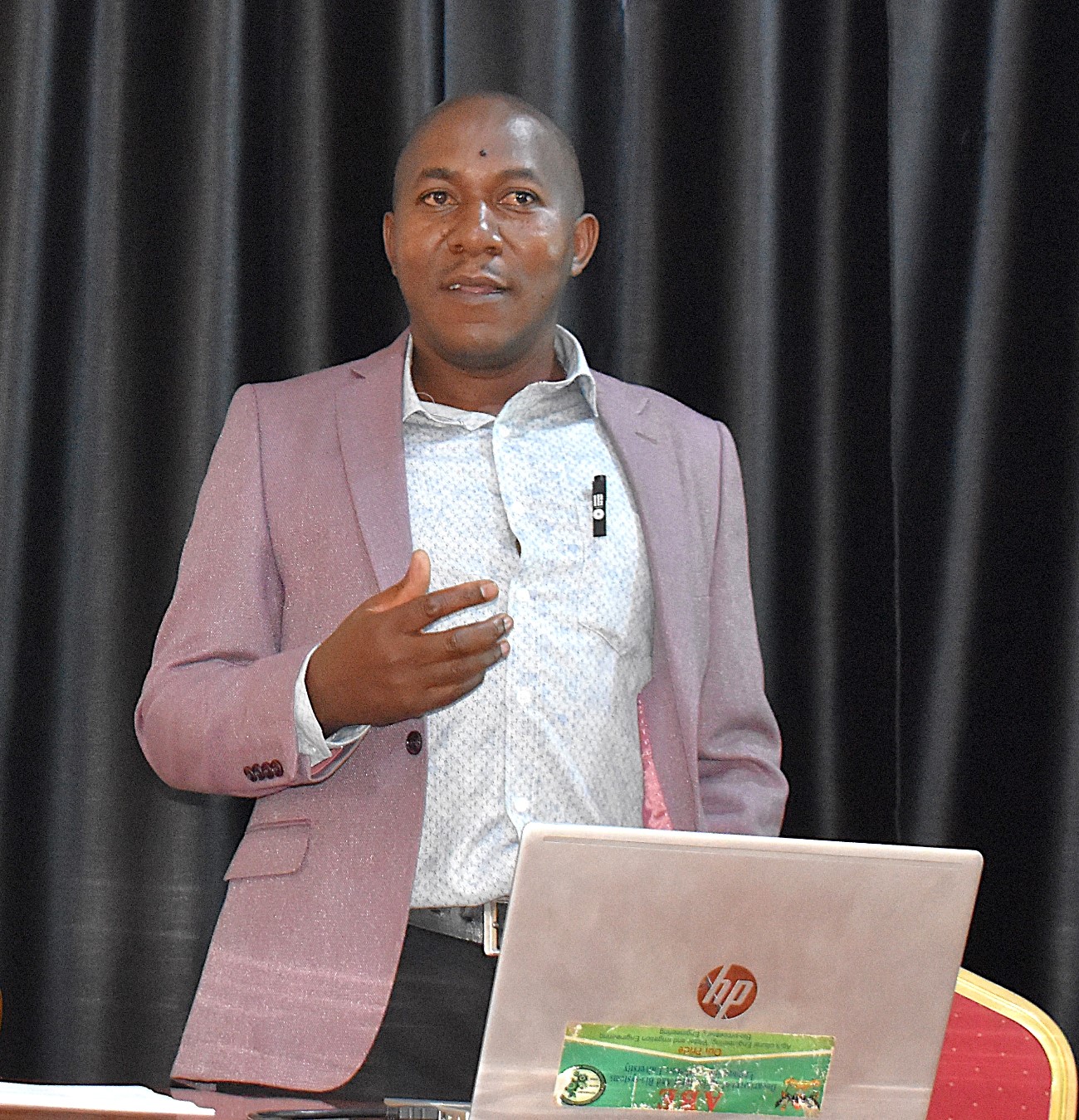
From June 23 to 27, 2025, Makerere University hosted a comprehensive Training of Trainers workshop. The training programme encompassed a diverse range of topics delivered by subject matter experts from institutions, including Makerere University (Department of Agricultural and Biosystems Engineering – CAES, and the College of Engineering, Design, Art and Technology – CEDAT), Hochschule University of Applied Sciences, and Busitema University. Participants were carefully selected from diverse professional backgrounds, including recent engineering graduates from CAES and CEDAT, Makerere University, University technical staff, personnel from Kyambogo University, officials from Buvuma District Works and Health Departments, and electricians from Kampala City. The training sessions were conducted at Makerere University and Buvuma Health Centre IV Hospital.
Training Modules Included:
- Sustainable energy systems and their practical applications
- Energy generation and storage technologies
- Solar water heating: design, operation, maintenance, and performance optimization of solar water heaters, crop dryers, and concentrating solar heaters
- Solar PV technologies in Uganda: cell technology, system design, operations, maintenance, and hands-on practicals for standalone and grid-connected systems
- Public health implications of water quality
- Water treatment and quality management, including protocols, parameters, and case study on the MCDI treatment system
- Water quality testing methodologies
- Introduction to sustainable refrigeration and cooling technologies
- Environmental impact and safety considerations for refrigerants
- Refrigeration cycles and component overview
- Life cycle assessment of SophiA technologies
- Thermal energy storage within the SophiA system
- Steam as a productive energy source
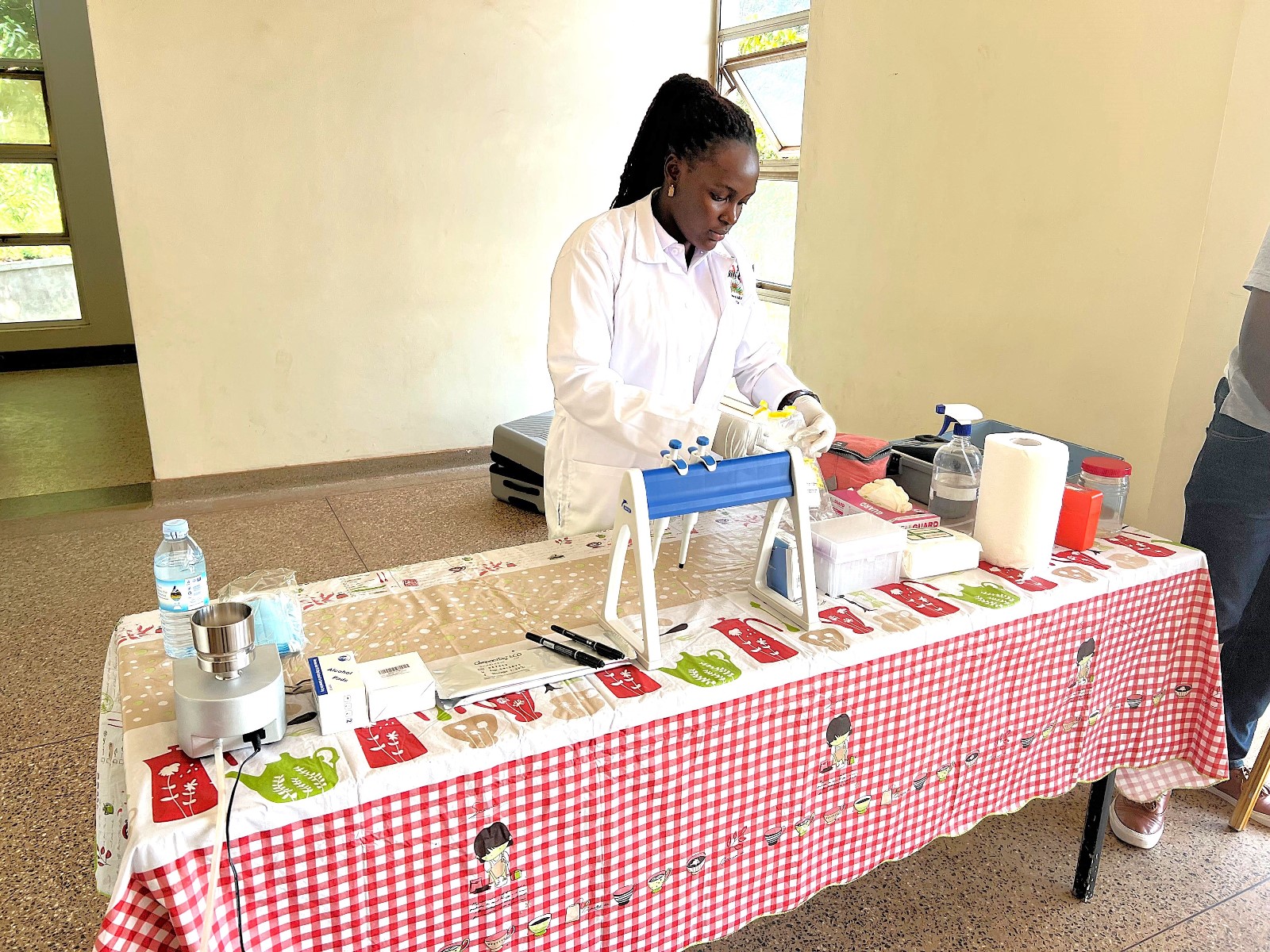
The Training Sessions
Day One: Introduction to foundational concepts in solar energy technologies
The first day of the SophiA Train the Trainers Workshop focused on building foundational knowledge in sustainable and solar energy systems. Led by Dr. Peter Tumutegyereize and Dr. Francis Mujjuni, participants explored a range of technologies and applications critical to clean energy deployment.
Key topics included:
Sustainable Energy Systems: Introduction to renewable energy systems including bioenergy, hydro, wind, geothermal, hydrogen fuel cells, and battery storage.
Solar Radiation & Geometry: Understanding solar constants, irradiance, and the impact of atmospheric conditions on solar performance.
Solar Thermal Technologies: Detailed look at solar water heating systems (FPCs and ETCs), maintenance, sizing, and solar dryers for agricultural and industrial use.
Photovoltaic (PV) Systems: Working principles, types of PV cells, performance factors, and diagnostics. Practical testing techniques and metrics like Voc, Isc, MPP, and PR were discussed.
Simulation & Application: Olivia Nakiwanuka demonstrated a PVsyst-based simulation of a 2.55 kWp standalone system for a conference hall, showing a high solar fraction (97.88%) and low LCOE (USD 0.03/kWh).
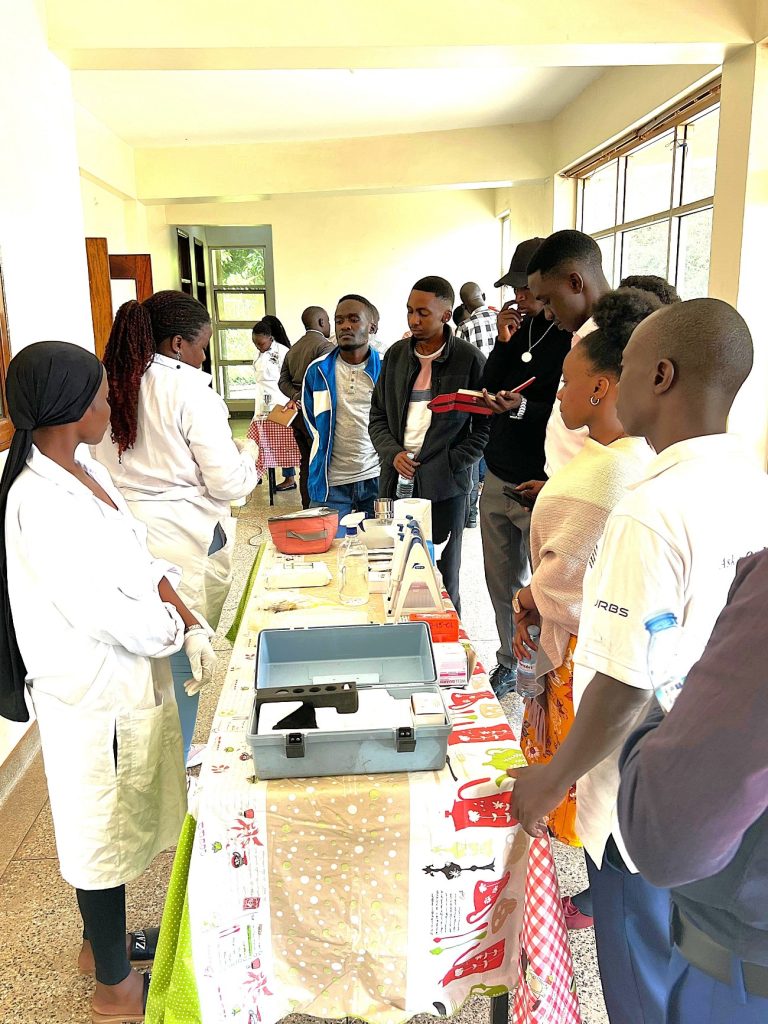
The sessions emphasized practical skills, performance analysis, and real-world application, equipping participants to train others and support solar adoption, especially in rural and off-grid settings.
Day Two: Water Treatment Technologies
The second day focused on water treatment technologies relevant to low-resource healthcare settings. Facilitated by Sneha De and Mr. Duc Dinh Ngoc from Hochschule Karlsruhe University, sessions covered technical, environmental, and operational challenges, with contributions from Dr. Joshua Wanyama on water quality management and Dr. Prossie Nakawuka on practical water testing.
Key challenges addressed included unreliable water supply and contamination in healthcare facilities, emphasizing the need for decentralized water treatment, especially in rural areas.
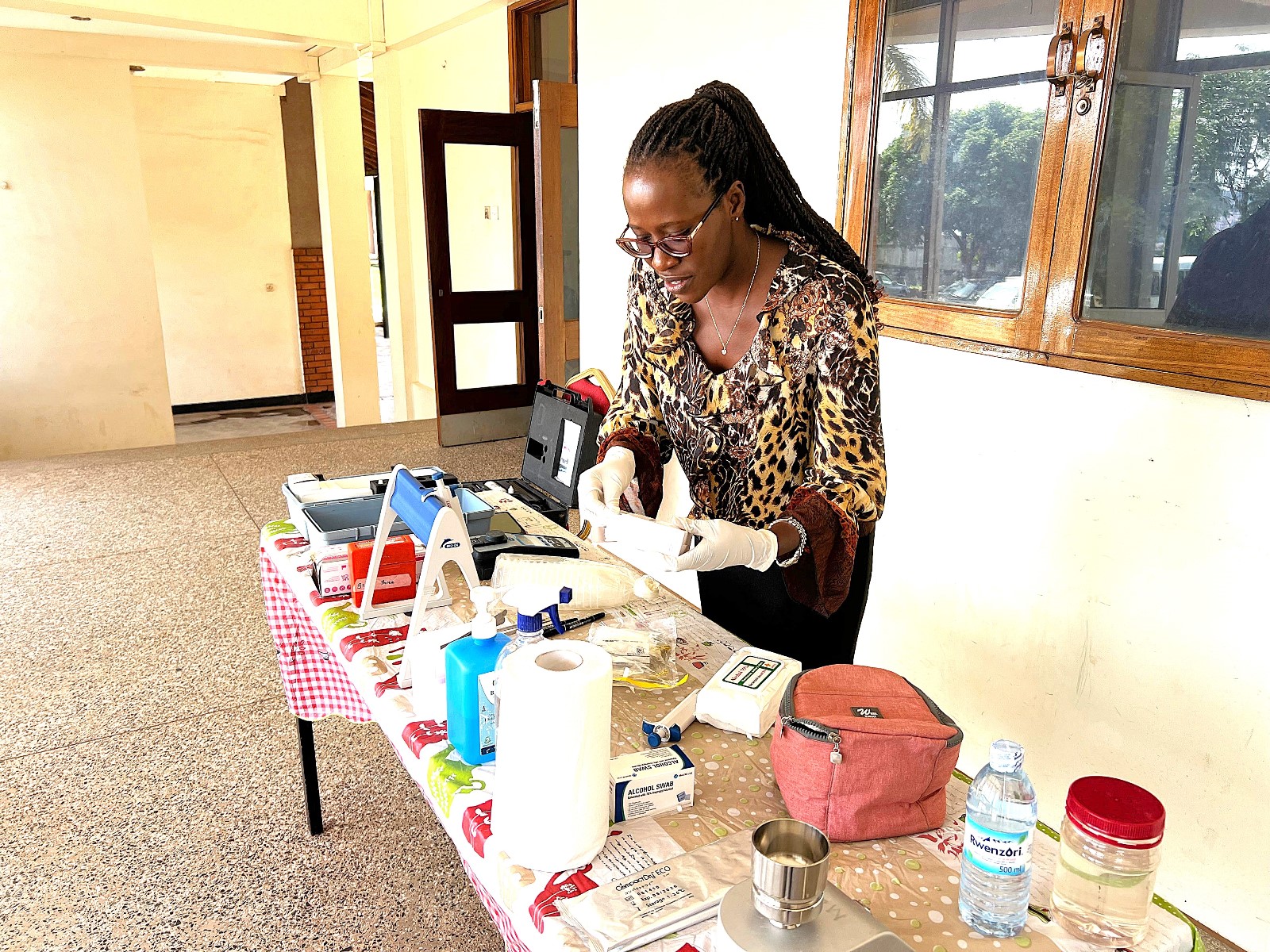
Sneha De reviewed biological and physical/chemical water treatment methods, highlighting technologies such as activated sludge, filtration, membrane bioreactors, and advanced disinfection techniques. The SophiA modular water treatment system, integrating ultrafiltration and membrane capacitive deionisation (MCDI), was introduced as a scalable solution for producing safe drinking and deionised water for medical use.
Mr. Duc Dinh Ngoc trained participants on the MCDI technology, an energy-efficient method for salt and fluoride removal suitable for low-salinity water.
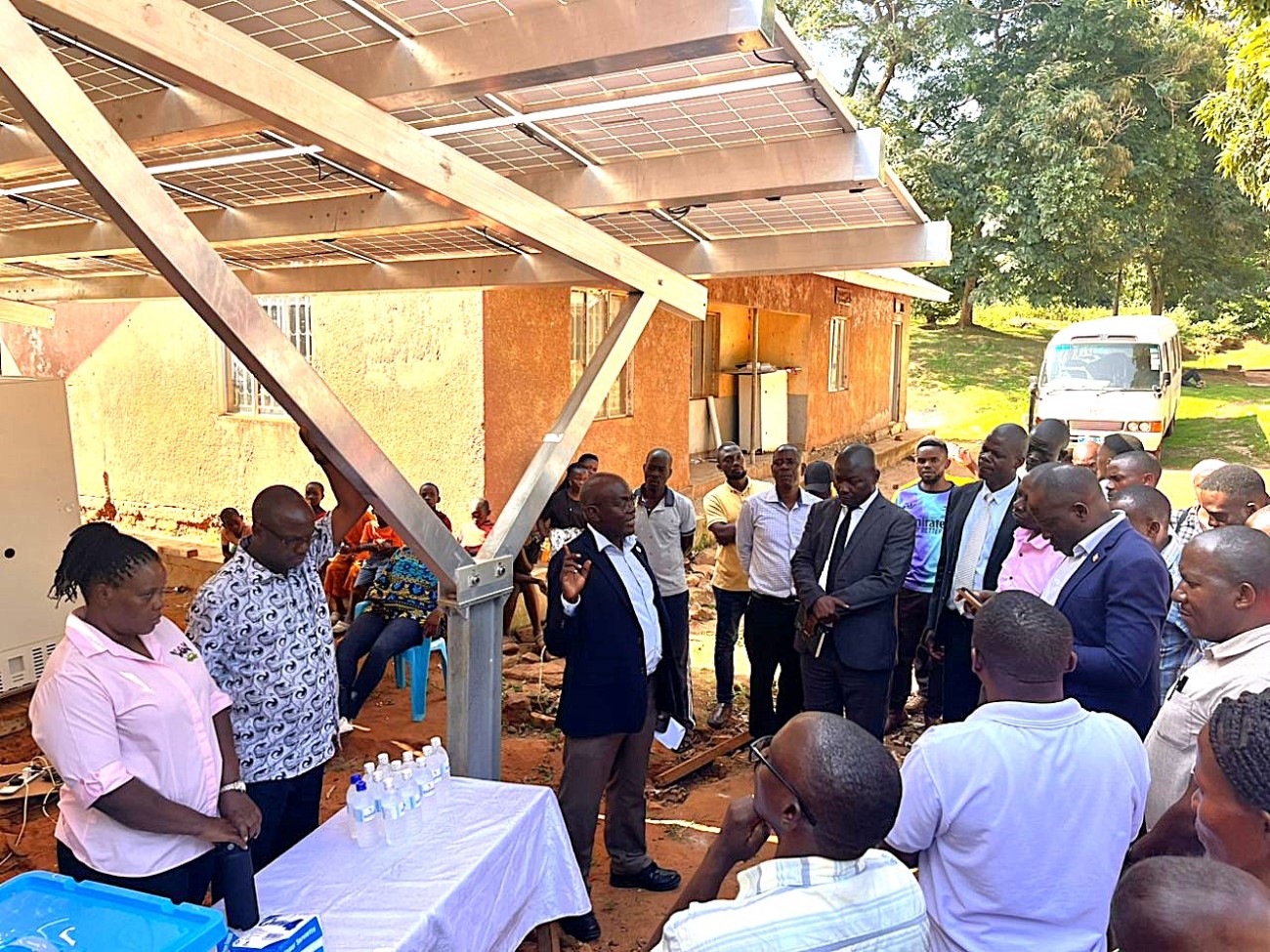
Dr. Joshua Wanyama discussed the water quality management protocols, outlining key physical, chemical, and biological water parameters and monitoring strategies, including modern IoT-based tools, to ensure water safety and public health.
The day concluded with a hands-on lab session by Dr. Prossie Nakawuka, where participants practiced water quality testing using turbidimeters, incubators, and filtration techniques.
Overall, Day Two combined theoretical insights, technology demonstrations, and practical skills, preparing participants to implement sustainable water treatment and quality management systems in healthcare environments.
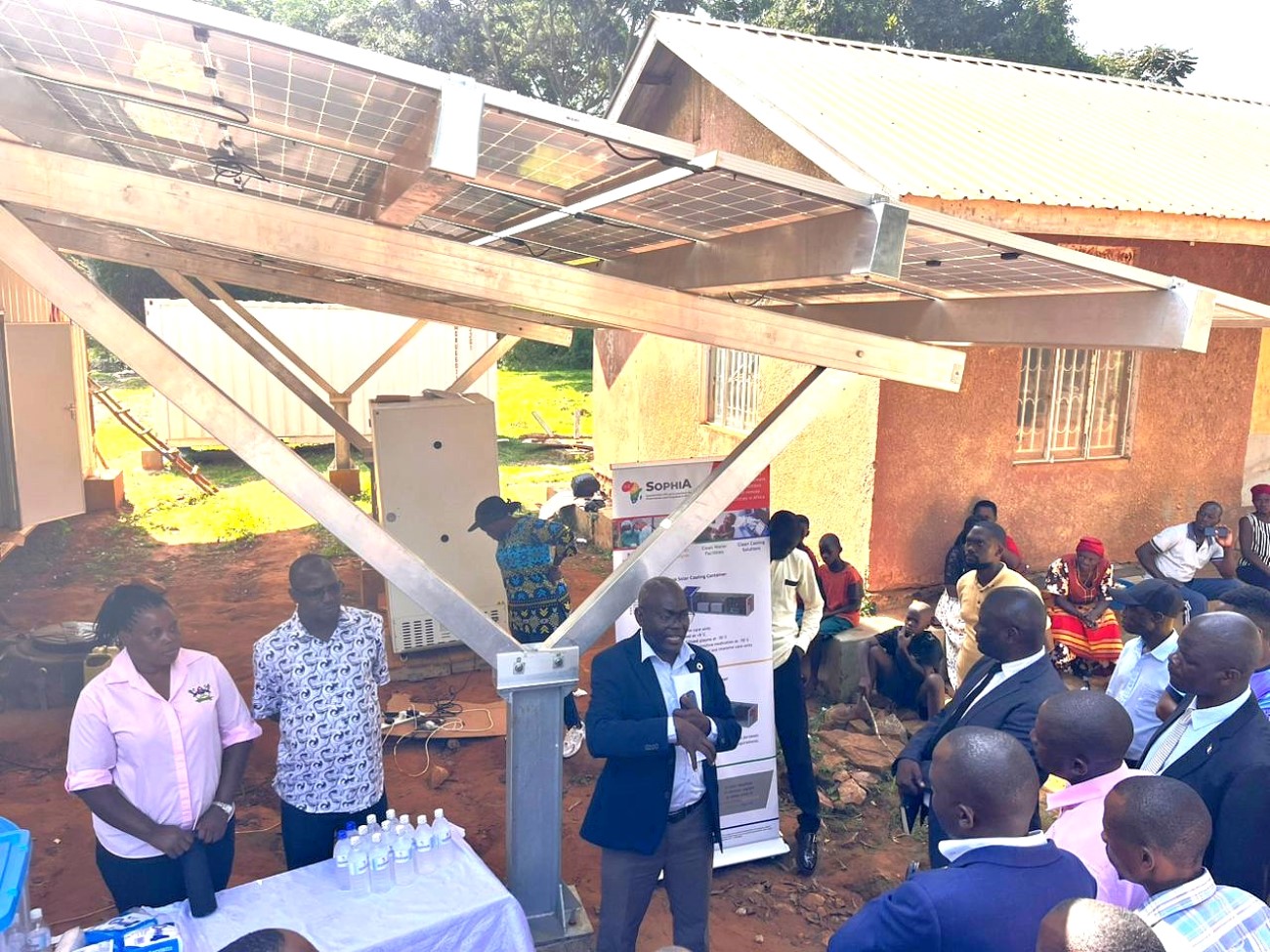
Day Three: Refrigeration and Cold Storage
The third day of the SophiA workshop focused on sustainable refrigeration and cold storage technologies tailored for healthcare in Sub-Saharan Africa. Experts discussed energy-efficient, climate-friendly cooling solutions vital for vaccine storage, medicines, and diagnostics, especially in off-grid and rural settings.
Key highlights included the introduction of solar-powered and biomass-based refrigeration systems, thermal energy storage methods, and the use of natural refrigerants like propane, ammonia, and CO₂ as environmentally safer alternatives. Presentations emphasized the critical role of refrigeration in healthcare and the urgent need to replace harmful chemicals with sustainable technologies.
Sessions covered real-world applications such as the SophiA cooling containers in Burkina Faso, safety protocols for flammable refrigerants, and the environmental and economic benefits of solar refrigeration systems assessed through life cycle analysis.
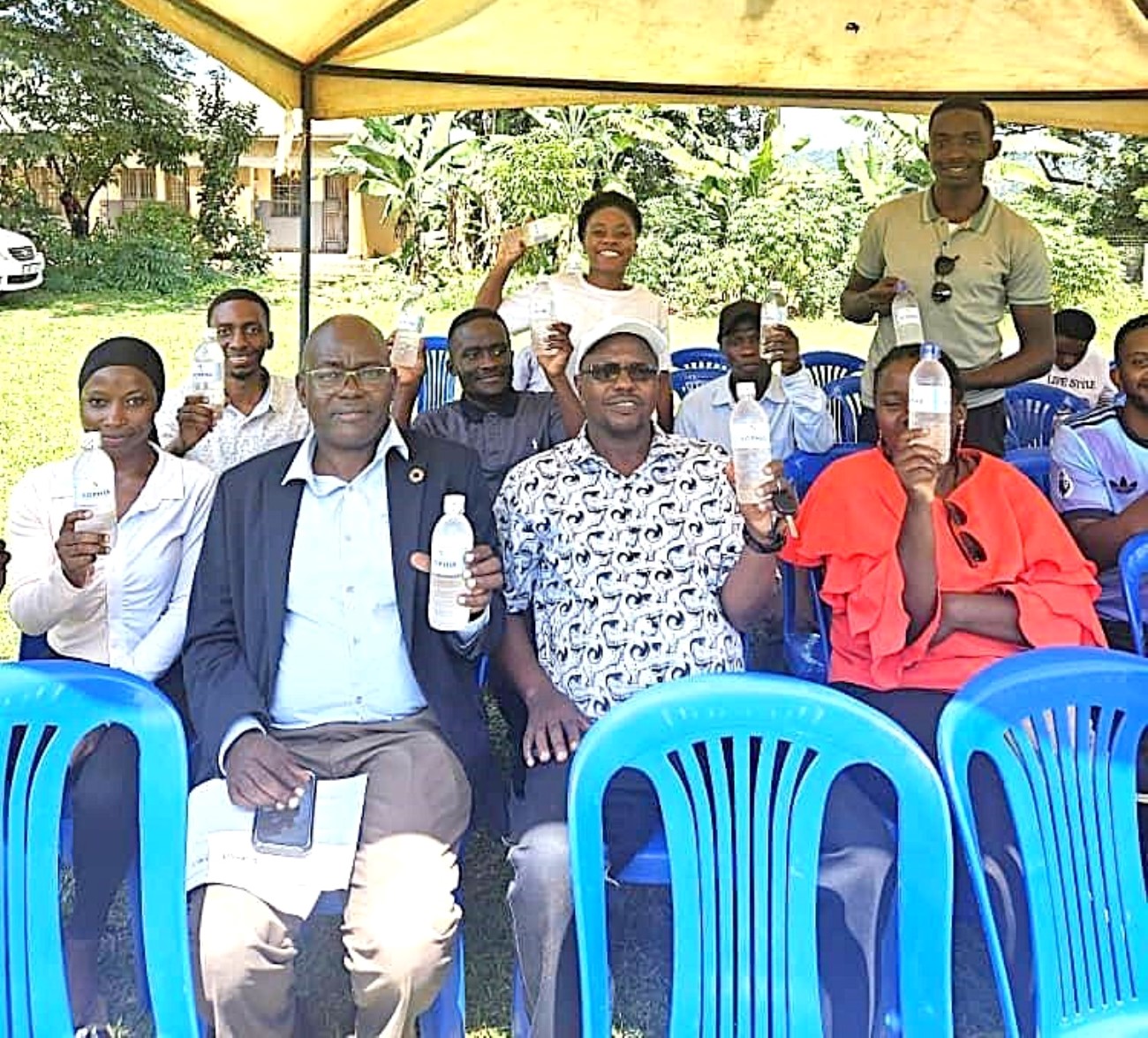
The day ended with an interactive quiz and discussion, reinforcing learning and encouraging participants to apply sustainable cooling practices in their communities.
Day Four: World Refrigeration Day & Field Visit to Buvuma Island
The fourth day of the SophiA Train the Trainers workshop was dedicated to the celebration of the World Refrigeration Day and a field excursion to Buvuma Island, providing participants with a unique opportunity to witness the SophiA system in action. The day was coordinated by Dr. Sarah Bimbona and Dr. Nicholas Kiggundu, who led the delegation to Buvuma Health Centre IV, the pilot site for the SophiA installation in Uganda.
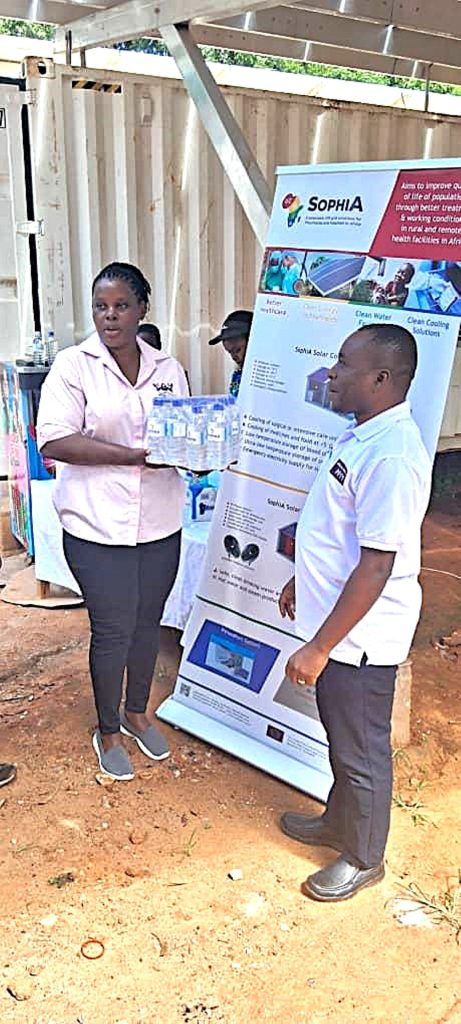
The visit served as both a practical extension of the previous day’s technical sessions and a community engagement event. Participants were able to observe the installed SophiA system, which integrates solar-powered refrigeration, water treatment and steam generation technologies designed for off-grid healthcare settings. During the visit, Dr. Kiggundu provided a detailed briefing to local stakeholders, including representatives from the Buvuma District Local Government, delegates from the Buganda Kingdom, and members of the local community. He explained how the SophiA system will enhance healthcare delivery on the island through reliable cold storage for vaccines and medicines, access to clean drinking water, and steam generated for cooking and use in the maternity wards.
As part of the long-term sustainability plan for the SophiA system, the launch of SophiA Water was announced, an entrepreneurial initiative designed to generate revenue locally for the operation and maintenance of the system.
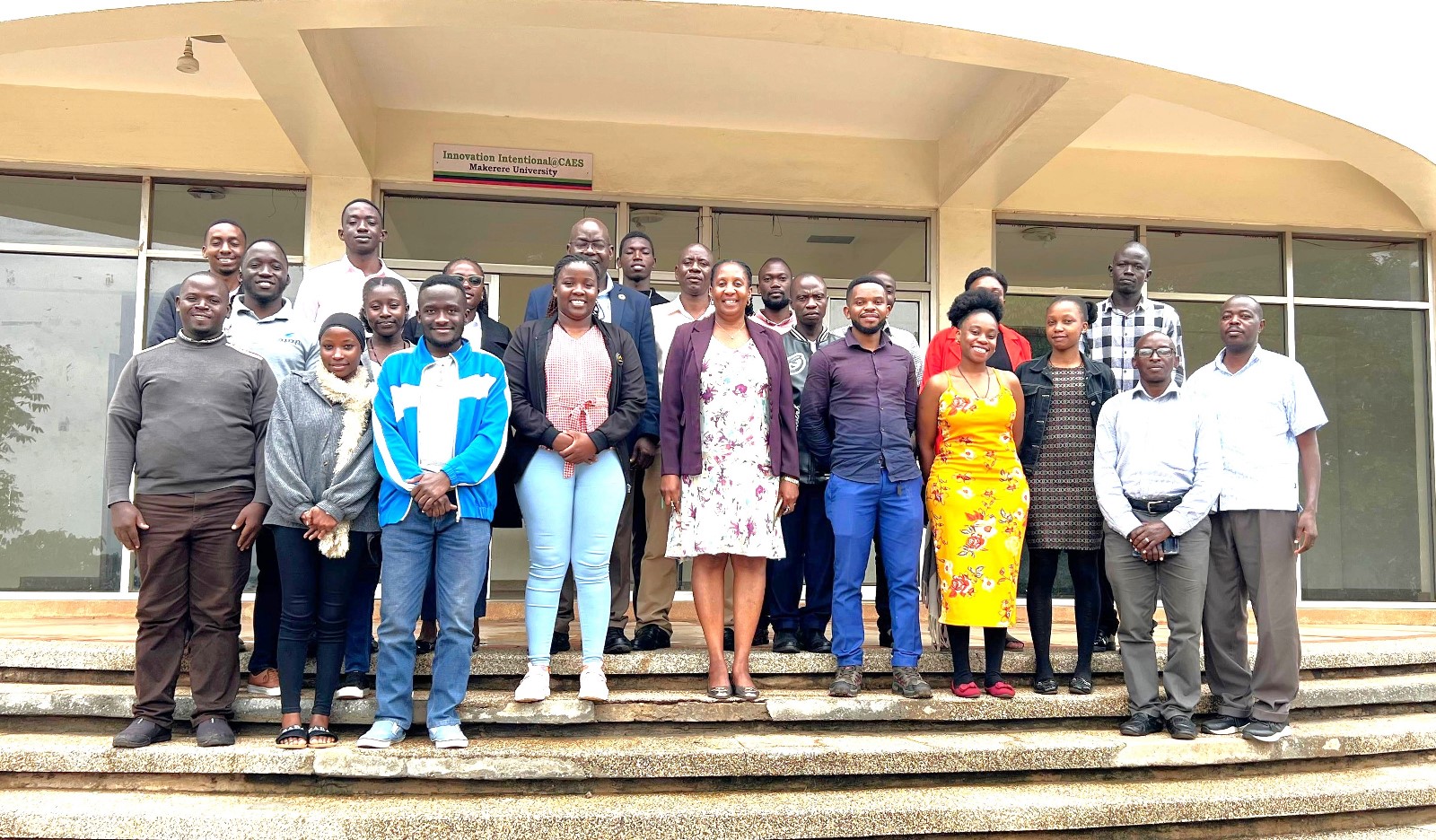
The field trip ended with a certificate awarding ceremony in appreciation of the participants’ dedication and active engagement throughout the training programme.
Agriculture & Environment
APRC Trains Graduate Students & Stakeholders in the Use of the African Agriculture Adaptation Atlas
Published
1 week agoon
July 3, 2025
The Agricultural Policy Research Centre (APRC), housed within the College of Agricultural and Environmental Sciences (CAES) at Makerere University, continues to play a pivotal role in shaping Uganda’s agricultural future through evidence-based policymaking. With a mission to ensure that agricultural policies are grounded in empirical research and data, APRC is actively investing in capacity-building initiatives that empower researchers, policymakers, and development actors.
In a significant stride toward building climate resilience in African agriculture, APRC recently organized a two-day intensive training workshop focused on the African Agriculture Adaptation Atlas (AAAA) – a state-of-the-art, web-based decision-support platform that facilitates the integration of climate data into agricultural planning and policy.

The workshop, held on Wednesday 25th and Thursday 26th June 2025 at the School of Agricultural Sciences, Makerere University, targeted two key groups: graduate students on the first day, and university faculty, government officials, and development practitioners on the second. This structure ensured tailored learning experiences for both emerging and seasoned professionals, helping to bridge the gap between academic research and real-world policy implementation.
The African Agriculture Adaptation Atlas (AAAA) is designed to provide dynamic, data-rich visualizations that support informed decision-making in agriculture and food systems across the continent. Through interactive maps and analytical tools, users can explore projected climate impacts, evaluate risks, and identify localized, climate-smart adaptation strategies.

Throughout the sessions, participants received hands-on training in a broad range of AAAA functionalities, including:
- Leveraging the Atlas for research and policy communication: Enhancing the ability of scientists and policy actors to translate complex climate data into actionable insights;
- Assessing projected climate impacts and associated agricultural risks: Essential for forward-looking planning and risk mitigation;
- Identifying climate-smart investment options, with a particular focus on the livestock sector, which is especially vulnerable to climate shocks;
- Analysing gendered vulnerabilities: Examining how climate change disproportionately affects women in agricultural communities;
- Understanding the implications of heat stress on agricultural productivity: Supporting targeted interventions to protect producers and their livelihoods;
- Estimating the economic returns of adaptation strategies: Aiding in prioritizing investments and allocating limited resources effectively.

Prof. Bernard Bashaasha, the APRC Coordinator, emphasized the importance of the training in advancing Africa’s adaptation agenda. “As climate change continues to threaten food security and disrupt livelihoods across the continent, tools like the AAAA, and the skills to use them effectively are essential. They empower decision-makers to craft policies that are adaptive, inclusive, and rooted in science,” he noted.
The workshop was coordinated by Dr. Florence Rwiza, Lecturer in the Department of Agribusiness and Natural Resource Economics at CAES.
More photos from the Training






Agriculture & Environment
NbS4Tea Project Team Makes Great Progress, Deploys Drones for Data Collection
Published
3 weeks agoon
June 24, 2025
****Funded by the Danish Fellowship Centre under Denmark’s Ministry of Foreign Affairs, NbS4Tea is a five-year initiative aimed at enhancing climate resilience and tea productivity in Uganda.
Launch of drones for data collection
The Nature-based Solutions for Tea (NbS4Tea) project has registered a significant milestone with the successful deployment of drones to improve environmental and agricultural data collection.
On 19th June 2025, the project team officially launched the drones at the Rwebitaba Tea Research Centre in Kyenjojo District, the project’s main research hub. The launch event included hands-on training sessions by Mr. Timothy Mutungi, a certified Remote Sensing Drone Pilot. Mr. Mutungi provided detailed instruction on drone operation, safety procedures, and data acquisition techniques specifically tailored to the project’s goals. The training was attended the core NbS4Tea researchers as well as students supported by the project.

By utilizing drone technology, the team will be able to capture high-resolution imagery and gather critical environmental data across vast tea-growing areas. This will enable more precise assessments of biodiversity, soil health, water use, and overall ecosystem services. The valuable insights generated will guide the development of sustainable, nature-based agricultural practices with the potential for widespread adoption throughout the tea industry.
About the NbS4Tea Project
NbS4Tea is a five-year initiative aimed at enhancing climate resilience and tea productivity in Uganda. Funded by the Danish Fellowship Centre under Denmark’s Ministry of Foreign Affairs and led by Dr Emmanuel Arthur from Aarhus University, the project is being implemented through a consortium of Ugandan and Danish institutions namely: Makerere University, the National Agricultural Research Organization (NARO), Uganda, Uganda Tea Association, Aarhus University, Denmark, and Kick-start International.

The primary objective of the project is to sustainably close the tea yield gap in Uganda by developing research-driven, nature-based solutions that enhance the climate resilience of tea production systems. This involves identifying climate-resilient tea varieties, integrating tea prunings and banana by-products, utilizing nitrogen-fixing agroforestry trees, and improving irrigation management. The approach emphasizes socio-economic feasibility, capacity building in research, and a market-oriented, multi-stakeholder collaboration to ensure both environmental and economic sustainability.
At Makerere University, the project is coordinated by Dr Alex Nimusiima from the Department of Geography, Geo-Informatics and Climatic Sciences at CAES. Other Project members are; Dr Grace Nakabonge from the Department of Forestry, Biodiversity and Tourism; Dr Prossy Nakawuka from the Department of Agricultural and Bio-systems Engineering; Dr Twaha Ali Basamba from the Department of Agricultural Production; and Dr Alice Turinawe from the Department of Agribusiness and Natural Resource Economics.

Specific objectives
- Identify and quantify climate change impacts on tea yield and quality based on historical and newly obtained data and novel data mining methods.
- Screen, select and recommend tea varieties adapted to abiotic (drought and heat) and biotic stresses (diseases and pests).
- Develop new knowledge on the potential of local waste biomass (tea prunings, banana pseudostems and peels) as soil amendments- mulch, compost, biochar, to recycle nutrients, improve soil fertility, increase carbon sequestration and alleviate drought.
- Reveal NbS through agroforestry combined with organic mulch, irrigation and resilient tea varieties that increase biodiversity and tea yield.
- Innovate new methods to enhance tea production under climate change through rainwater harvest and climate-smart irrigation infrastructure.
- Empower vulnerable groups (women, youth, and people with disabilities) in tea production and processing to ensure multi-actor involvement and socio-economic benefit outreach of the proposed NbS in tea cultivation and production.
- Identify export market strategies for NbS tea products, aligned with consumer preferences.

Progress thus far
Launched in January 2024, the project, organized in five work packages, has registered significant progress. Each of the work packages listed below supports one PhD student and one Masters’ student. The PhD students are: i) Mr. Adiga Hassan from the Department of Geography, Geo-Informatics and Climatic Sciences at CAES conducting research under work package 1; ii) Ms. Sarah Namayengo from the Department of Forestry, Biodiversity and Tourism conducting research under work package 2; Ms. Vivian Namutebi from the Department of Soil Science and Land Use Management undertaking research on work package 3; Mr. Keneth Chelimo from the Department of Agricultural and Biosystems Engineering conducting his research under work package 4; and Ms. Moreen Asasira from the Department of Agribusiness and Natural Resource Economics focusing on work package 5. The Masters students are: i) Ms. Evelyn Katasi from the Department of Environmental Management at CAES (work package 1), Mr. Vereriano Turyahebwa from Department of Forestry, Biodiversity and Tourism (work package 2); Mr. Ben Okurut from the Department of Soil Science and Land Use Management (work package 3); Mr. Augustine Okot from the Department of Agricultural and Biosystems Engineering (work package 4); and Mr. Augustine Kigozi from the Department of Agribusiness and Natural Resource Economics (work package 5)

Work packages and achievements registered
Work Package 1: Climate change impacts on tea yield and quality – Headed by Dr. Alex Nimusiima
This work package centres on the analysis of historical and projected climate conditions in the study area. It examines how current climate patterns influence tea production, as well as the potential effects of future climate change on tea yield and quality.
Progress
i) A household survey assessing the socio-economic status of tea farmers and the effects of climate variability on their livelihoods has been completed.
ii) The collected data has been cleaned, and the Masters student supported under this work package is currently writing her thesis based on the survey findings.
iii) A historical climate analysis of the study area has been conducted by the PhD student, who is now preparing a manuscript.

Work Package 2: Screening & selecting tea genotypes for resilience to abiotic and biotic stresses – Headed by Assoc. Prof. Grace Nakabonge
This work package focuses on evaluating existing tea genotypes for their resistance to pests and diseases, using chlorophyll fluorescence imaging as a diagnostic tool.
Progress
i) A screen house has been constructed to serve as the experimental site.
ii) Germplasm from two tea varieties is currently being cultivated in the screen house in preparation for the upcoming experiments.
iii) A drone has been acquired to assist in data collection for this work package.

Work Package 3: Evaluation of NbS for climate resilience, higher yield and biodiversity- Headed by Assoc. Prof. Twaha Ali Basamba
This focuses on the characterization of mulch and biochar derived from tea prunings to improve soil health. It also aims to quantify the added value of Nature-based Solutions (NbS) in enhancing tea productivity, promoting climate resilience, and supporting biodiversity.
Progress
- So far, Biochar has been produced from tea prunings and characterized.
- The Masters student supported under this work package is writing his thesis on the results of biochar characterization.

Work Package 4: Innovating smart and scalable irrigation technology for improved tea production- Headed by Dr. Prossie Nakawuka
This work package aims to develop and evaluate smart, scalable irrigation solutions to boost tea production. It focuses on assessing how irrigation impacts tea yield and quality, measuring water use efficiency, and analyzing the economic returns of irrigation practices. Additionally, it explores deficit irrigation and climate-resilient strategies to ensure sustainable tea farming in changing environmental conditions.
Progress
- The irrigation infrastructure is now in place and fully operational at Rwebitaba Tea Research Centre in Kyenjojo District.
- The experimental plots for irrigation experiments are already in place with water pipes.

Work package 5: Socio-economic assessment of tea-agroforestry and selected tea varieties – Headed by Dr. Alice Turinawe
This work package emphasizes co-creation within multi-stakeholder innovation networks to evaluate the economic feasibility and market access of tea agroforestry systems. It also focuses on promoting gender balance and understanding consumer valuation of Nature-based Solutions (NbS) tea from Uganda.
Progress
To date, two co-creation workshops have been successfully conducted and the Masters student under this work package is currently analyzing the workshop results as part of their research.

Expected outputs and outcomes
- Increased tea production, productivity, and biodiversity through the adoption of NbS.
- Increased research and technical capacity of Makerere and R-ZARDI.
- Holistic stakeholder insight on economic feasibility, consumer acceptance and market access strategies, especially for vulnerable groups in the tea value chain.
- Increased job prospects for youth and women in tea production sub-sectors.
- Improved social status and increased incomes of tea farmers, traders, and exporters.
- Improved economic and environmental quality by recycling biomass waste into value-added products dedicated to soil enhancement.
- 4+ high-yielding tea genotypes adapted to drought and heat, diseases and pests.
- 15+ scientific articles, conference presentations.
- Five PhDs and Five MSc degrees.
- Market access assessment and empowerment.

Details on the project: https://news.mak.ac.ug/2024/01/new-caes-project-to-improve-tea-production-in-uganda/
More photos from the event



Trending
-

 Education1 week ago
Education1 week agoAdmission List to Bachelor of Education External (BED) 2025/26 -Private Sponsorship
-

 General2 weeks ago
General2 weeks agoUndergraduate Admission List Self Sponsorship Scheme 2025/2026
-

 General4 days ago
General4 days agoRe-advert: Admission to Undergraduate Programmes 2025/2026
-
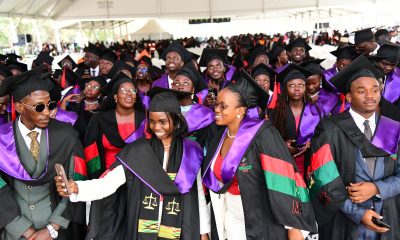
 General1 week ago
General1 week agoAdmission Lists for – Bachelor of Laws 2025-26
-
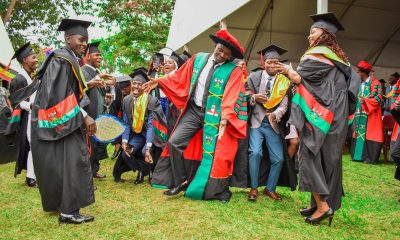
 General1 week ago
General1 week agoDiploma/Degree Holders Scheme – Self Sponsorship Admission Lists 2025/26